Introduction
Sokoban is a type of puzzle video game in which the player pushes boxes around in a warehouse, trying to get them to storage locations. This might seem simple, but the limited space can make it surprisingly challenging.
Gameplay
The warehouse is a grid composed of floor squares and impassable wall squares. Some floor squares contain a box and some are marked as storage locations. The number of boxes equals the number of storage locations.
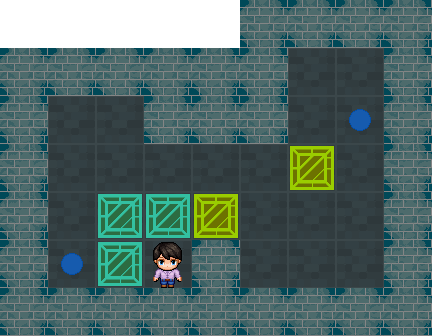
The player moves in four directions (up, down, left, or right) and cannot pass through walls or boxes.
Boxes are heavy and can only be pushed one square forward if directly in front of the player, and the space directly beyond the box is free of obstacles (a wall or another box). Boxes cannot be pulled or lifted, and only one can be pushed at a time.
The puzzle is solved when all boxes are on storage locations.
Sokoban requires strategic thinking and careful planning. A misplaced box can block pathways or create dead ends, often forcing players to undo moves or restart the puzzle.
Some puzzles can be really tricky, but the thrill of success makes it all worthwhile!
History
Last update: November 26, 2025
Sokoban (倉庫番) is a puzzle video game created in Japan in 1981 by Hiroyuki Imabayashi.
In 1982, he founded his software company Thinking Rabbit and began to publish and license many Sokoban games.
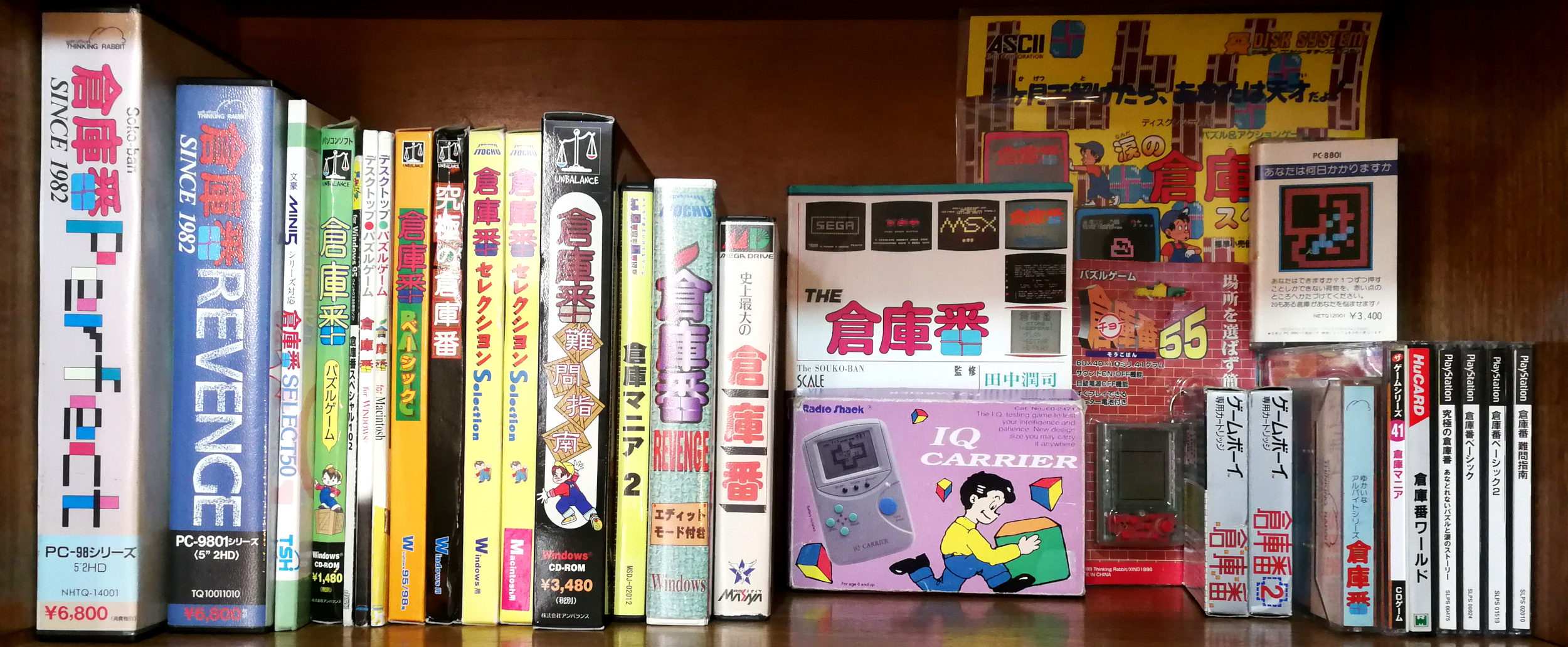
However, around the year 2000, Thinking Rabbit became inactive. Subsequently, in 2001, Falcon, another Japanese software company, acquired the Sokoban and Thinking Rabbit trademarks, and has since continued to develop Sokoban games and publish them under the Thinking Rabbit brand, as well as license official Sokoban titles.
In addition, over the years, other companies and individuals created games with the same mechanics, often called Sokoban clones, which also contributed to Sokoban's popularity.
To get an idea of what the official games and clones look like, see the screenshots below.
Japan - Sokoban 1
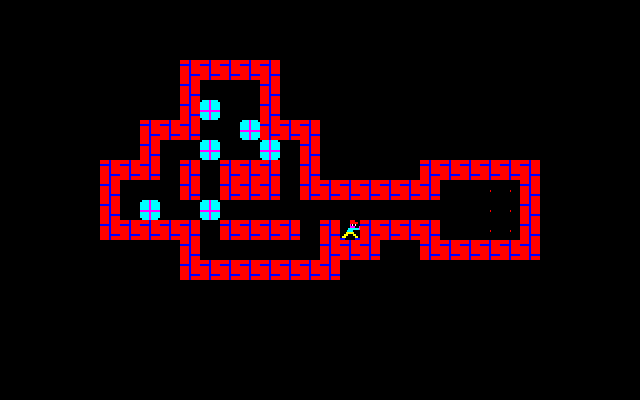
Sokoban (PC-8801)
1982 December - Thinking Rabbit
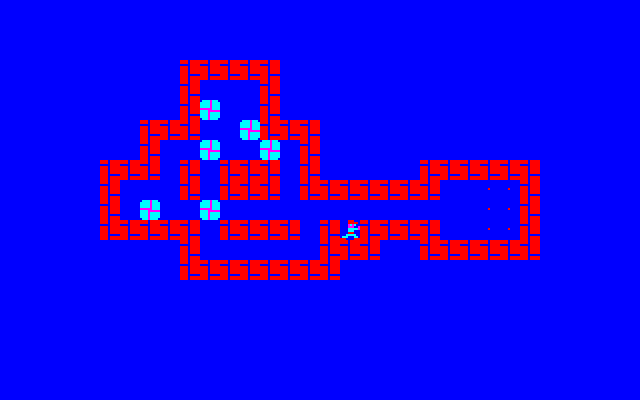
Sokoban (PC-8001 mk2)
1982 December - Thinking Rabbit
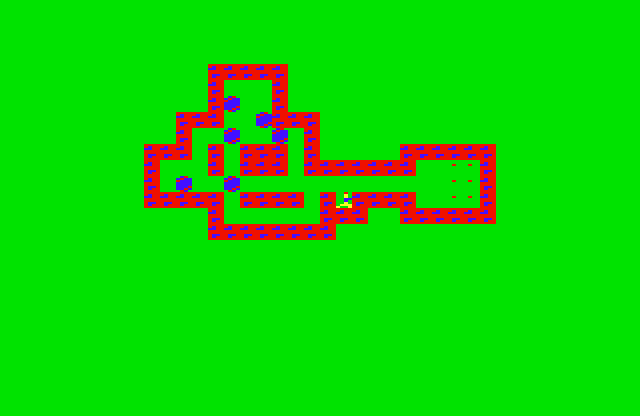
Sokoban (PC-6001 32K)
1983 - Thinking Rabbit
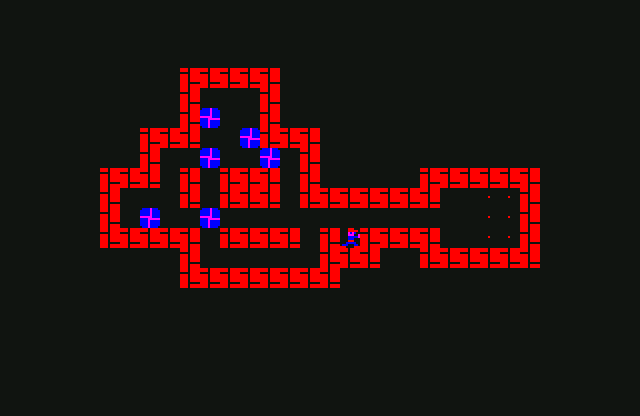
Sokoban (PC-6001 mk2)
1983 - Thinking Rabbit
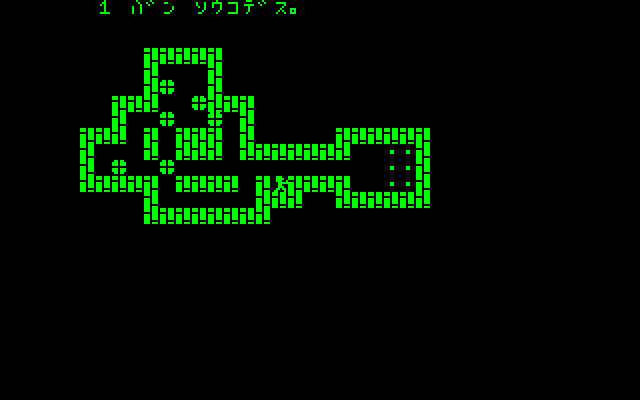
Sokoban (MZ-2000 Mono)
1983 - Thinking Rabbit
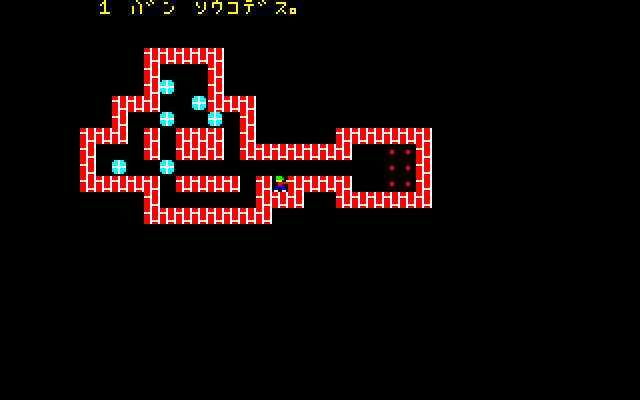
Sokoban (MZ-2000 Color)
1983 - Thinking Rabbit
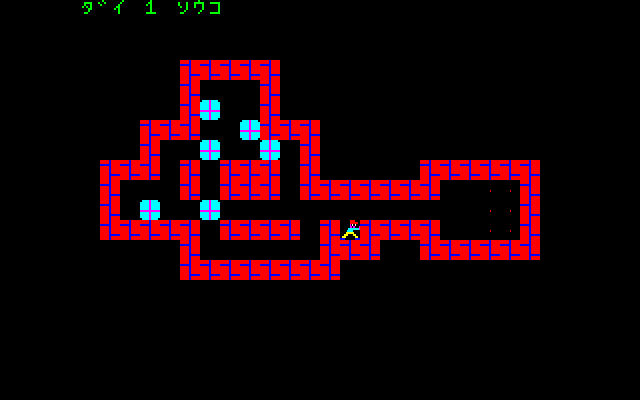
Sokoban (Sharp-X1)
1983 - Thinking Rabbit
Japan - Sokoban 1 Extra
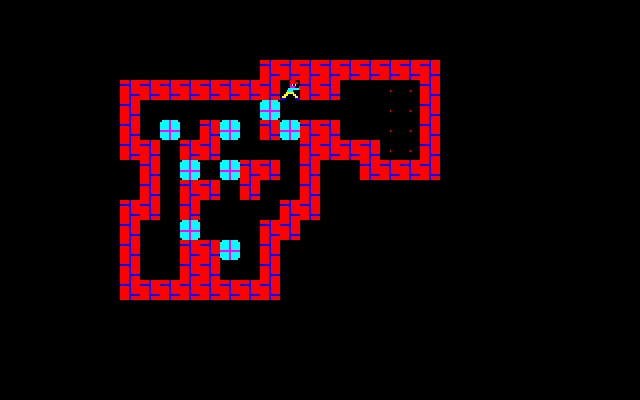
Sokoban Extra Edition (PC-8801)
1983 August - PCマガジン
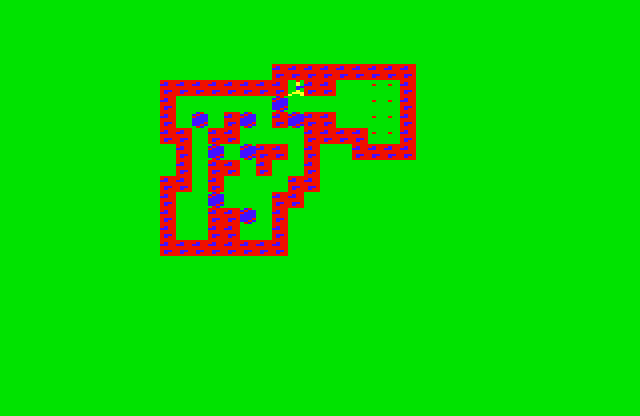
Sokoban Extra (PC-6001 32K)
1984 May - PCマガジン
Japan - Sokoban 2
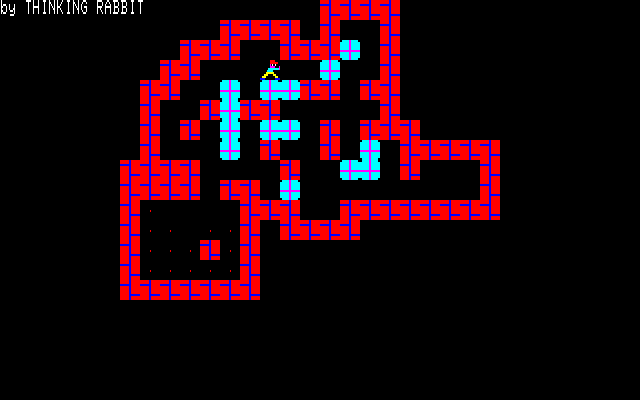
Sokoban 2 (PC-8801)
1984 February - Thinking Rabbit
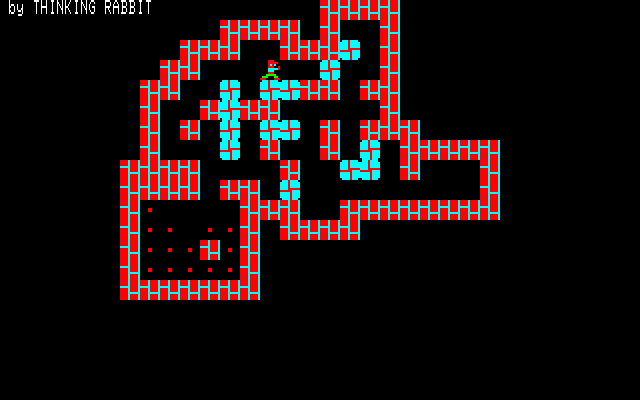
Sokoban 2 (PC-8001 mk2)
1984 March - Thinking Rabbit
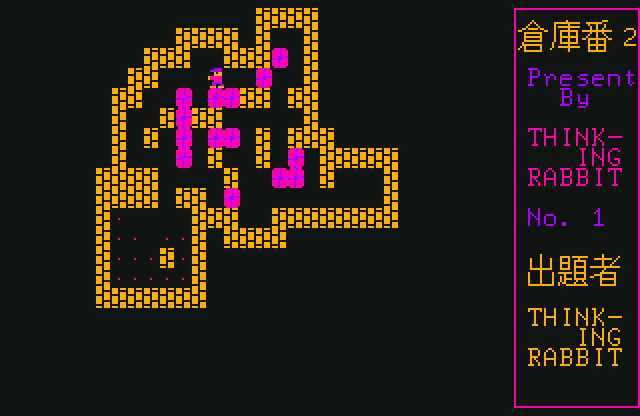
Sokoban 2 (PC-6001 mk2)
1984 November - Thinking Rabbit
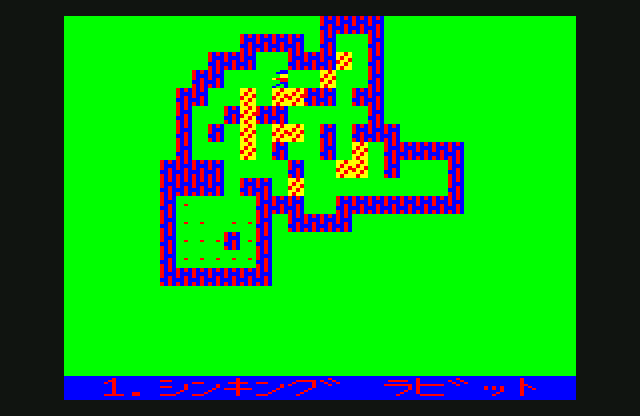
Sokoban 2 (PC-6001 32k)
1984 December - Thinking Rabbit
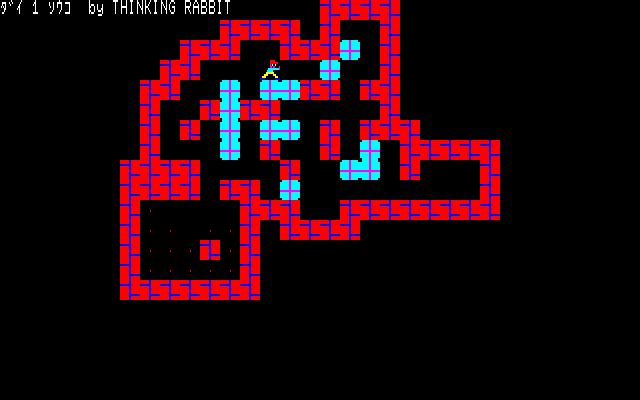
Sokoban 2 (Sharp-X1)
1984 - Thinking Rabbit
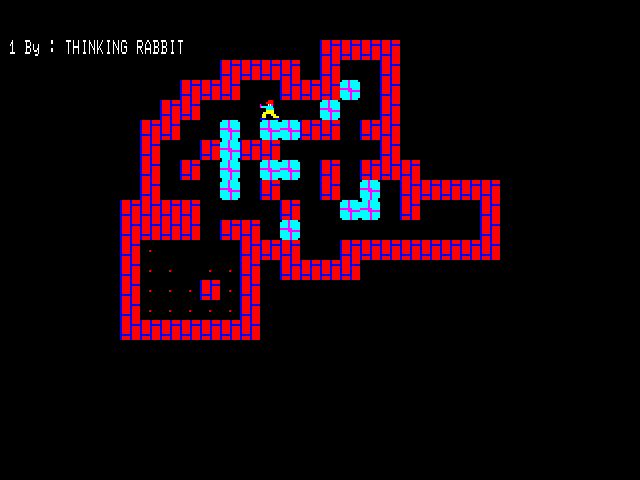
Sokoban 2 (MB-S1)
1984 - Thinking Rabbit
Japan releases 1984-1989 (various)
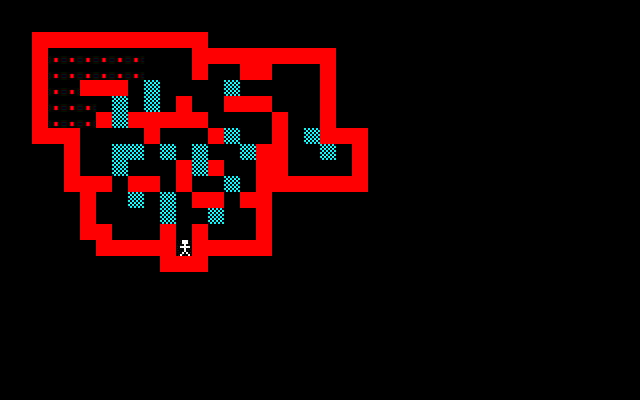
Sokoban Tiny Editor (MZ-700)
1984 March - MICRO
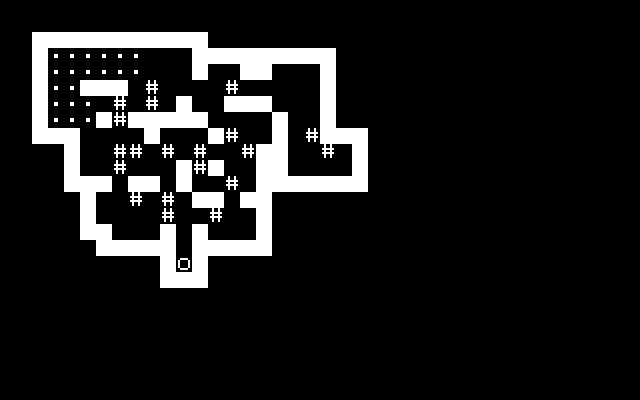
Sokoban Tiny Editor (PC-8001)
1984 April - MICRO
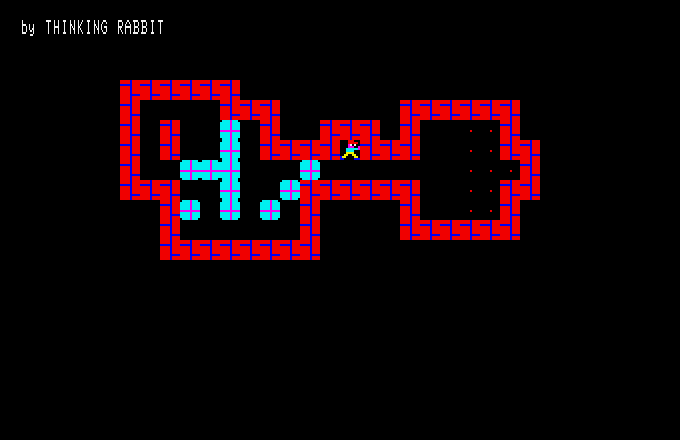
Sokoban (SMC-777)
1985 January - FLOPPY Magazine

Sokoban (EPOCH Game pocket computer)
1985 April - Epoch Co.
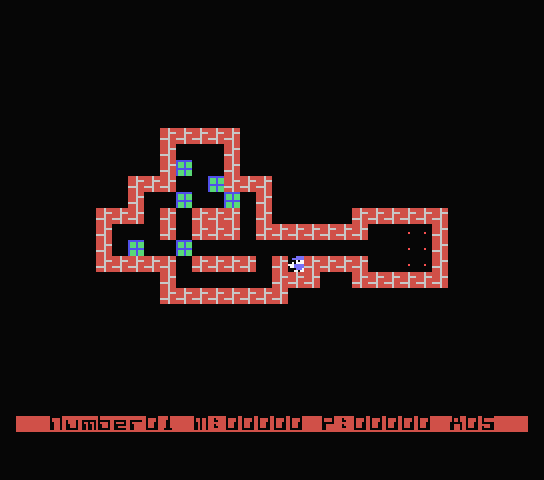
Sokoban (ROM pack) (MSX)
1984 May - ASCII Corporation
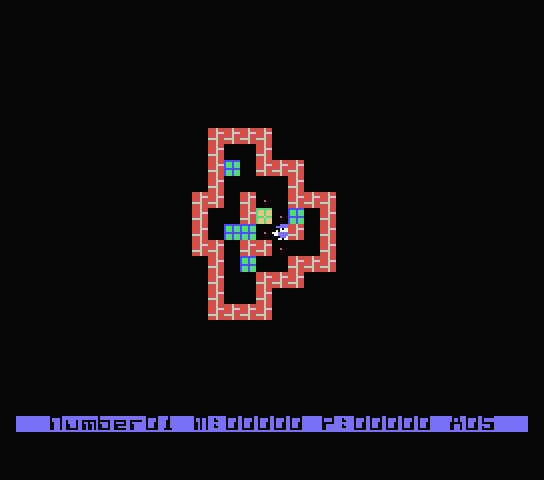
Sokoban Toolkit (Tape pack) (MSX)
1984 November - ASCII Corporation
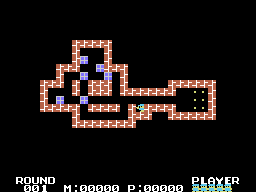
Sokoban (Sega SG-1000 II)
1985 December - Sega
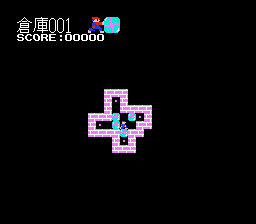
Sokoban Special of Tears / Namida no Sokoban Supesharu (Famicom)
1986 July - ASCII Corporation
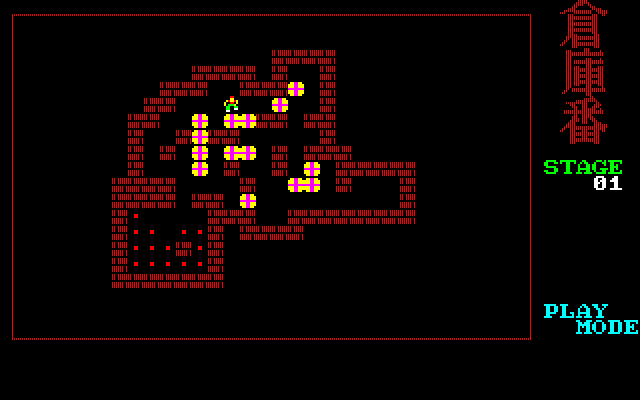
Sokoban for Pasopia 7 (Pasopia 7)
1987 November - Oh! PASOPIA
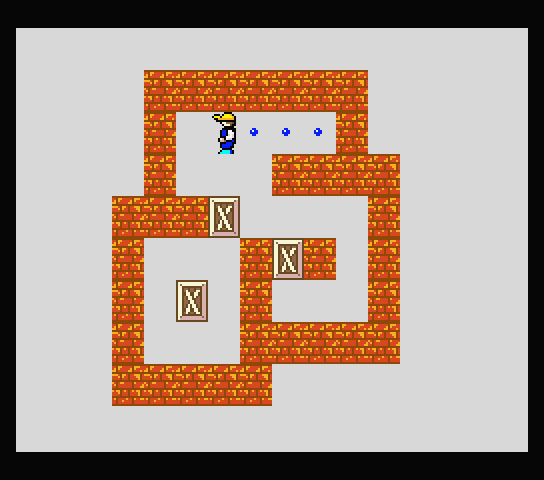
Sokoban Perfect (MSX2)
1989 - Micro Cabin
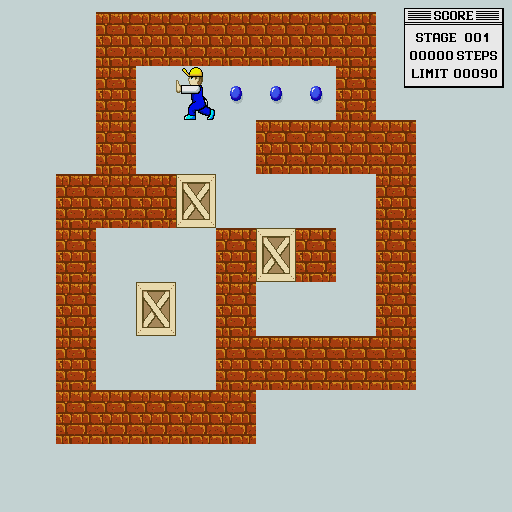
Sokoban Perfect (Sharp X-68000)
1989 - Thinking Rabbit
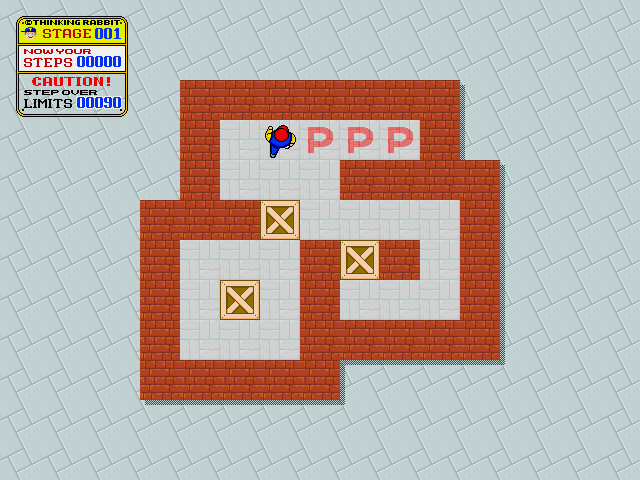
Sokoban Perfect (FM Towns)
1989 - Thinking Rabbit
Japan releases PC-9801
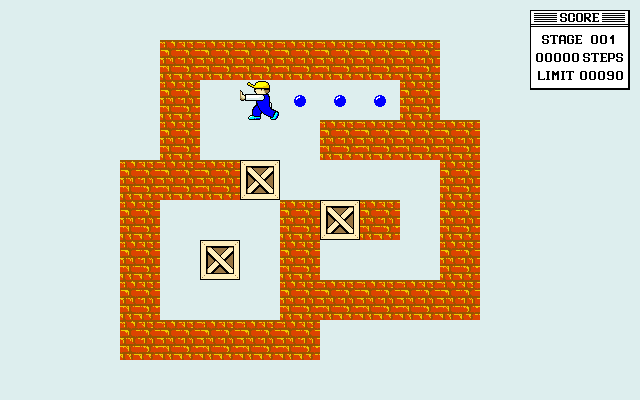
Sokoban Perfect (PC-9801)
1989 - Thinking Rabbit
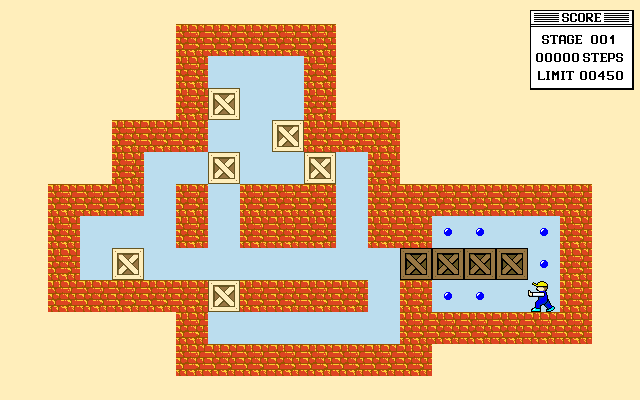
Sokoban Revenge (PC-9801)
1991 November 27 - Thinking Rabbit
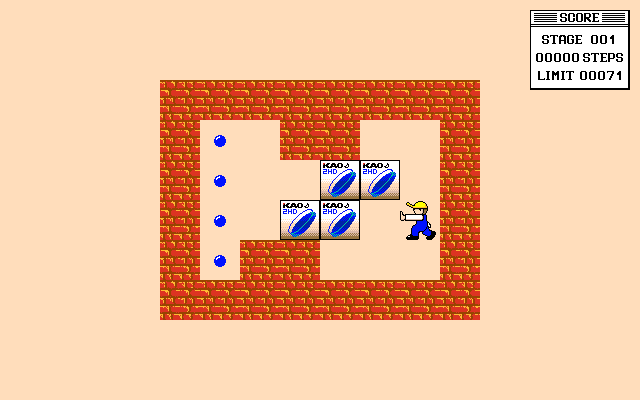
Sokoban Select 30 (PC-9801)
1991 - KAO
Japan releases Others
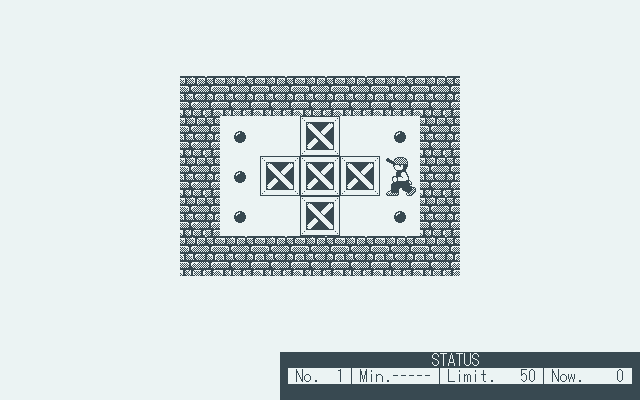
Sokoban Revenge (J-3100)
1993 November - Thinking Rabbit
Japan releases Game Boy
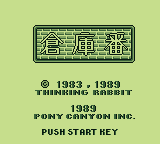
Sokoban (Game Boy)
1989 August - Pony Canyon
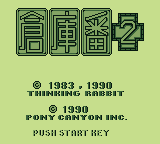
Sokoban 2 (Game Boy)
1990 June - Pony Canyon
USA releases Game Boy
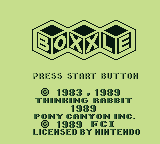
Boxxle (Game Boy)
1991 - FCI
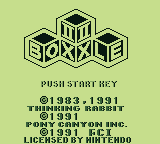
Boxxle II (Game Boy)
1992 - FCI
Japan releases 1990-1993
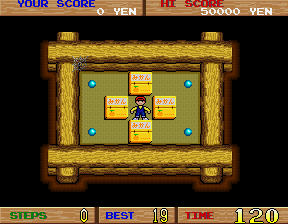
Sokoban DELUXE (Namco System 1)
1990 - Namco
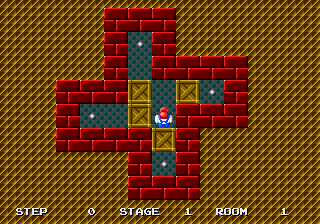
The Greatest Sokoban in History / Shijo Saidai no Sokoban (Sega Mega Drive)
1990 January - Masaya
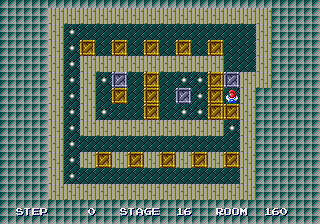
Shove It! ...The Warehouse Game (Sega Genesis)
1990 May - DreamWorks
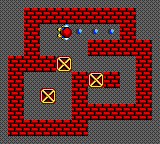
Sokoban (Sega Game Gear)
1990 December - Riverhill Soft
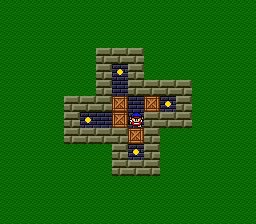
Sokoban World (PC Engine)
1990 March - Media Rings
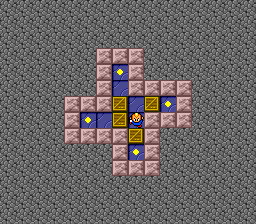
Boxyboy (TurboGrafx-16)
1990 October - NEC
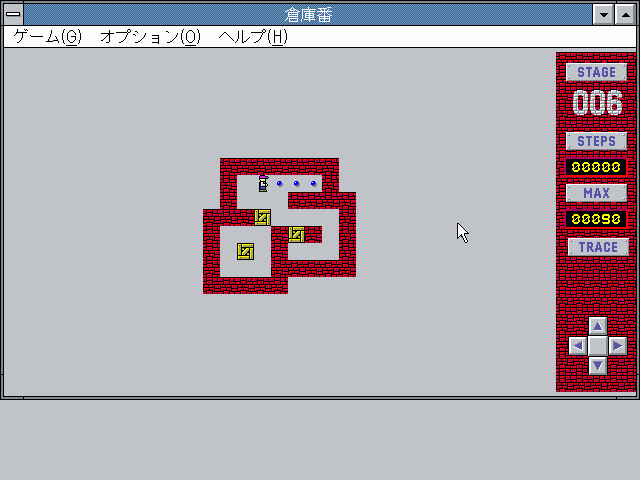
Amusement Series I Sokoban (Windows 3.0)
1992 - Pack-In-Video
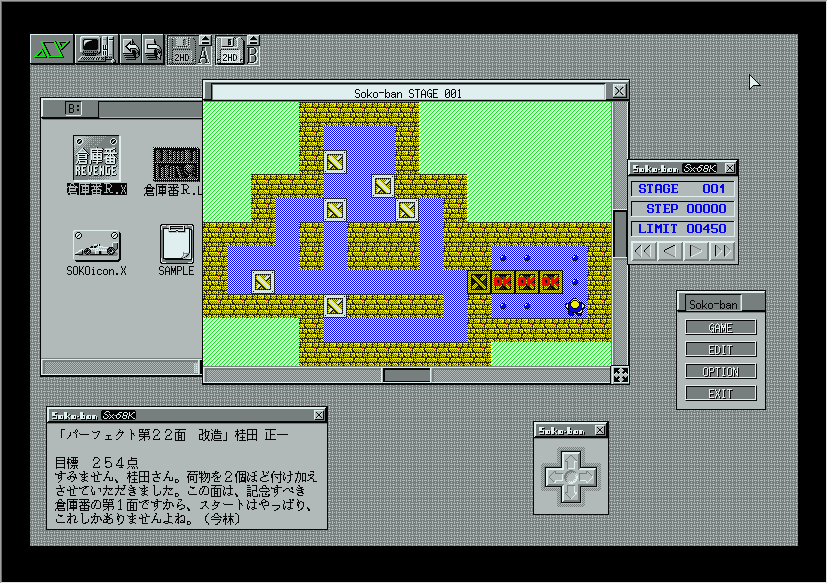
Sokoban Revenge SX-68K (Sharp X68000)
1993 - Thinking Rabbit
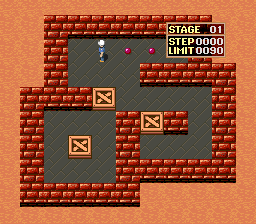
Super Sokoban (Super Famicom)
1993 January - Pack-In-Video
Japan releases 1995-2000
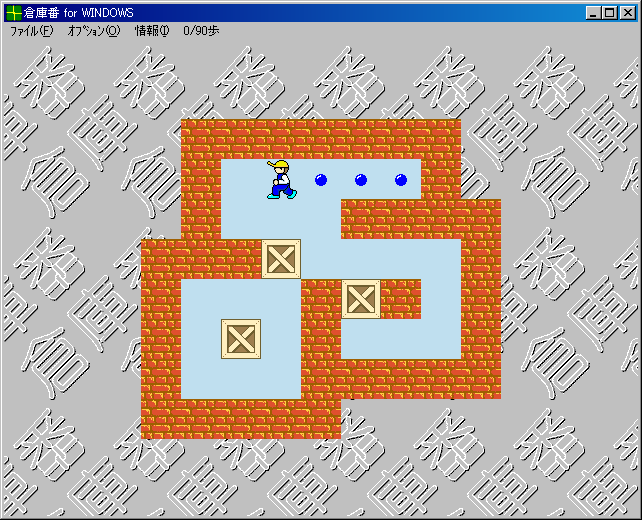
Sokoban for Windows (Windows)
1995 - Itochu
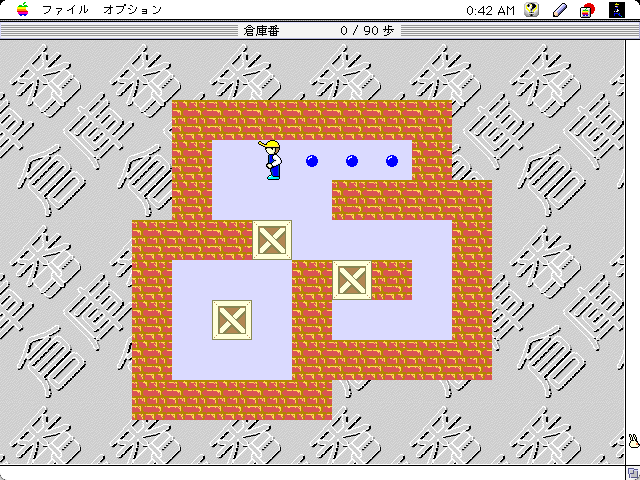
Sokoban for Macintosh (Macintosh)
1996 - Itochu
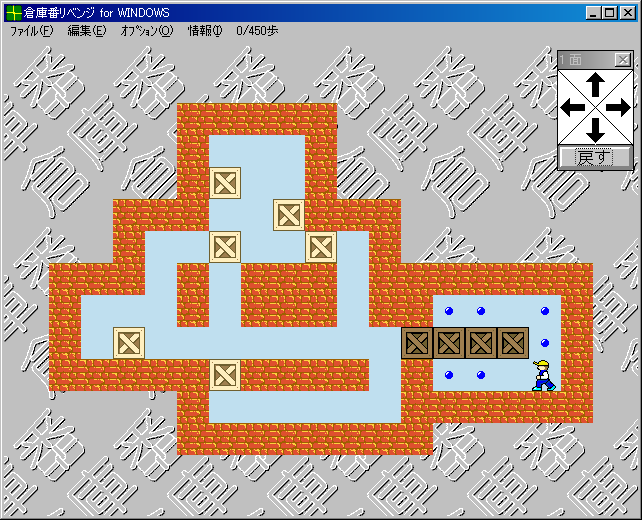
Sokoban Revenge for Windows (Windows)
1996 - Itochu
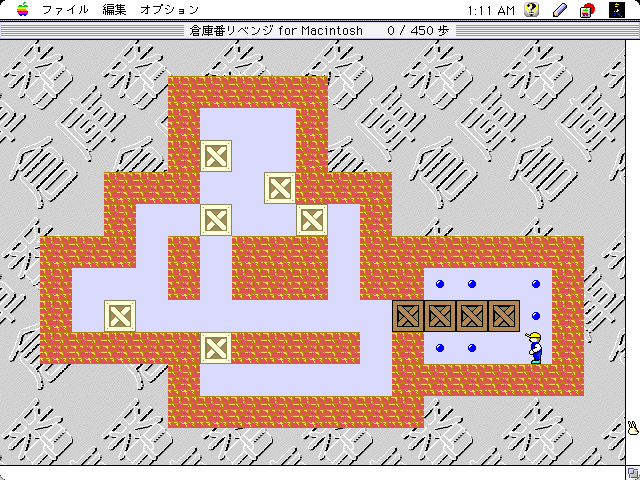
Sokoban Revenge for Macintosh (Macintosh)
1996 - Itochu
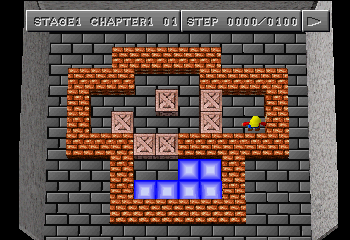
Ultimate Sokoban / Kyukyoku no Sokoban (PlayStation)
1996 - Itochu
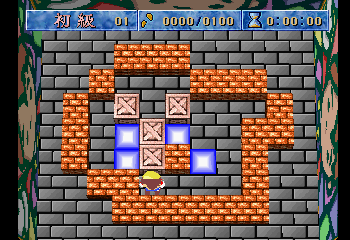
Sokoban Basic (PlayStation)
1997 August - Itochu
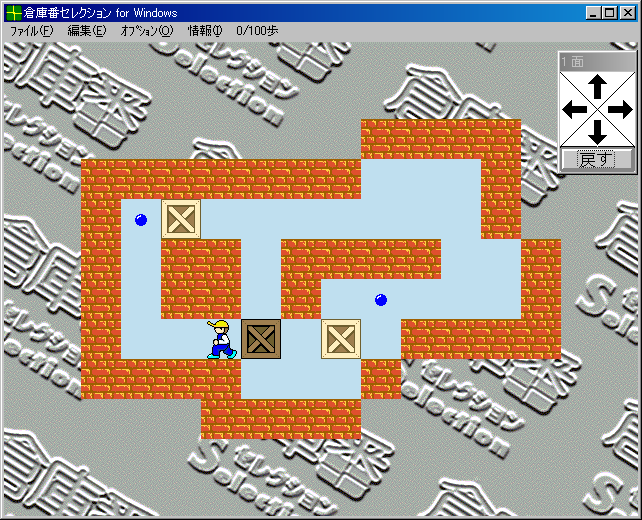
Sokoban Selection (Windows)
1997 October - Itochu
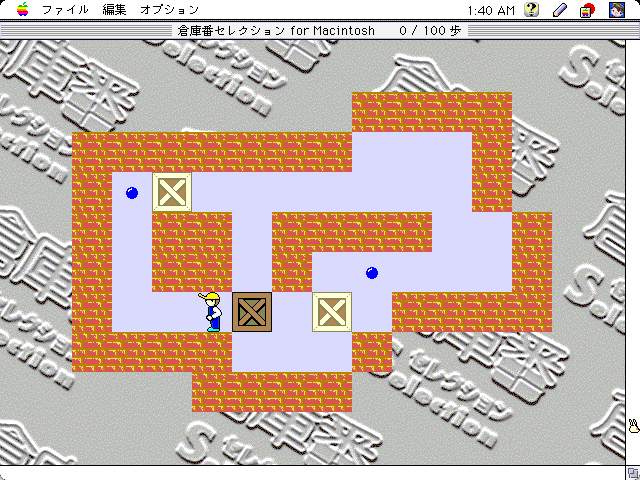
Sokoban Selection (Macintosh)
1997 December - Itochu
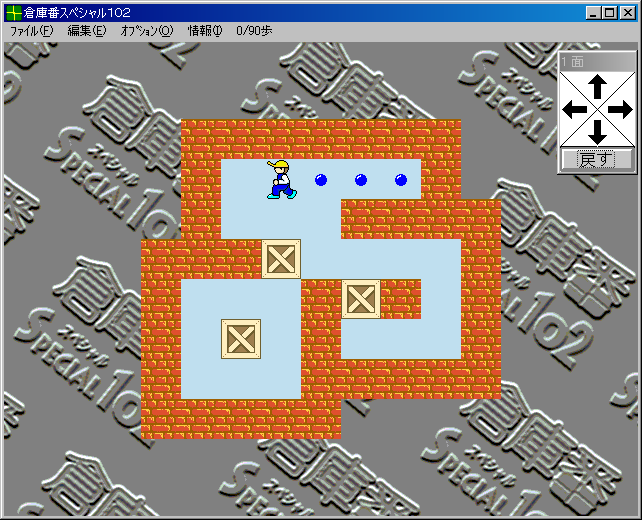
Sokoban Special 102 (Windows)
1998 January - Fujitsu Parex
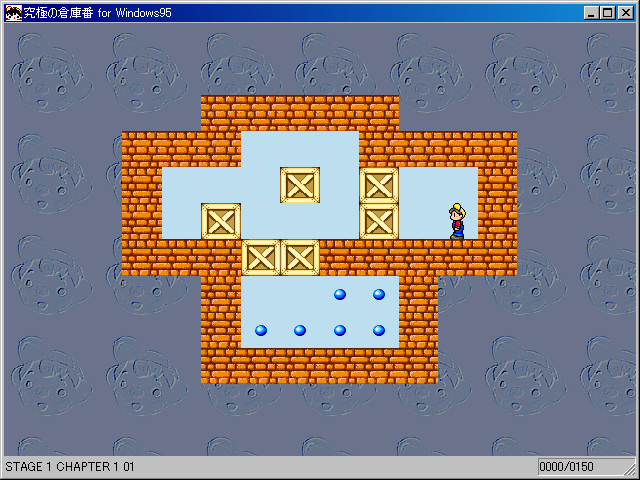
Ultimate Sokoban / Kyukyoku no Sokoban (Windows)
1998 March - Unbalance
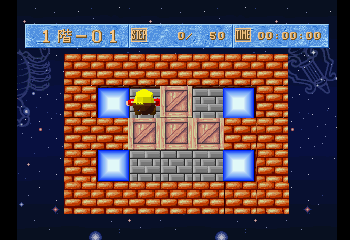
Sokoban Basic 2 (PlayStation)
1998 August - Unbalance
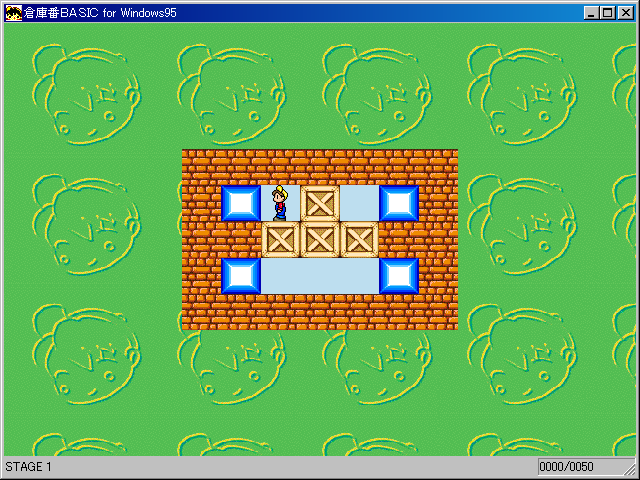
Sokoban Basic (Windows)
1998 - Unbalance
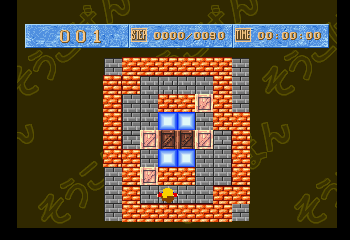
Sokoban: Guide to Difficult Puzzles / Sokoban Nanmon Shinan (PlayStation)
1999 April - Unbalance
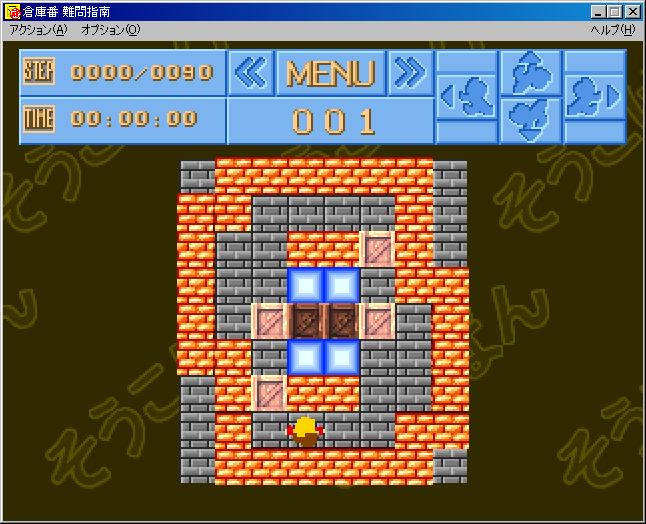
Sokoban: Guide to Difficult Puzzles / Sokoban Nanmon Shinan (Windows)
2000 June - Unbalance
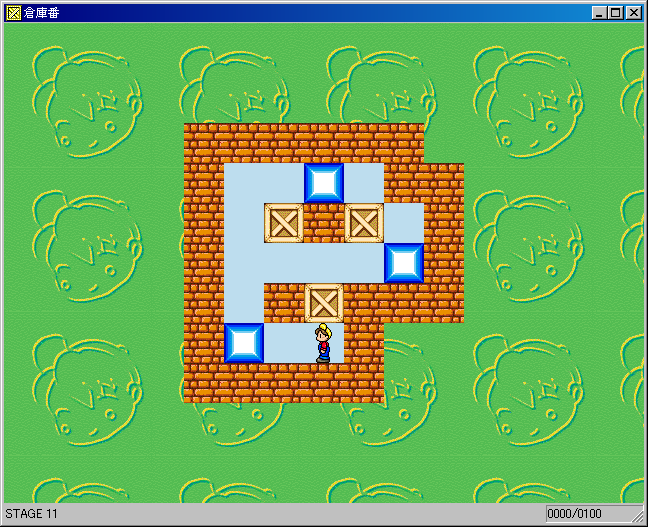
Sokoban (Windows)
2000 - Unbalance
Japan releases for mobile phones (keitai) 2004-2007
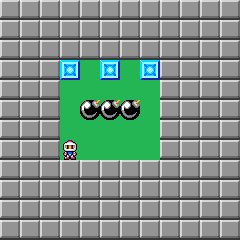
Bomberman Puzzle Vol. 1 Mini (i-mode)
2004 - Hudson Soft
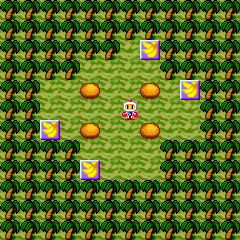
Bomberman Puzzle Special (i-mode)
2005 - Hudson Soft
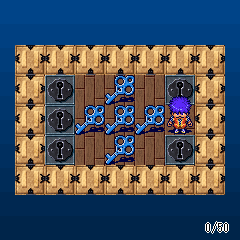
Konami Wai Wai Sokoban (i-mode)
2007 - Konami
Japan releases 2015-2020
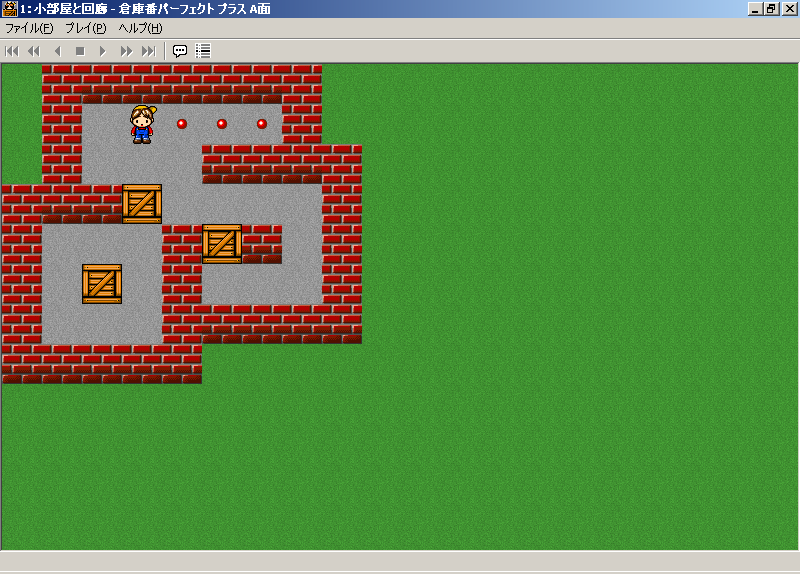
Sokoban Perfect Plus A-side (Windows)
2015 September 25 - Thinking Rabbit
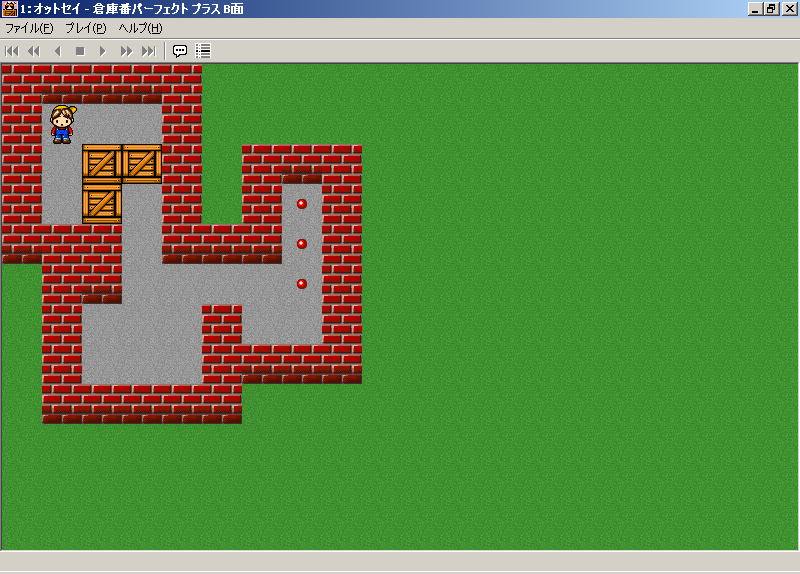
Sokoban Perfect Plus B-side (Windows)
2015 November 20 - Thinking Rabbit
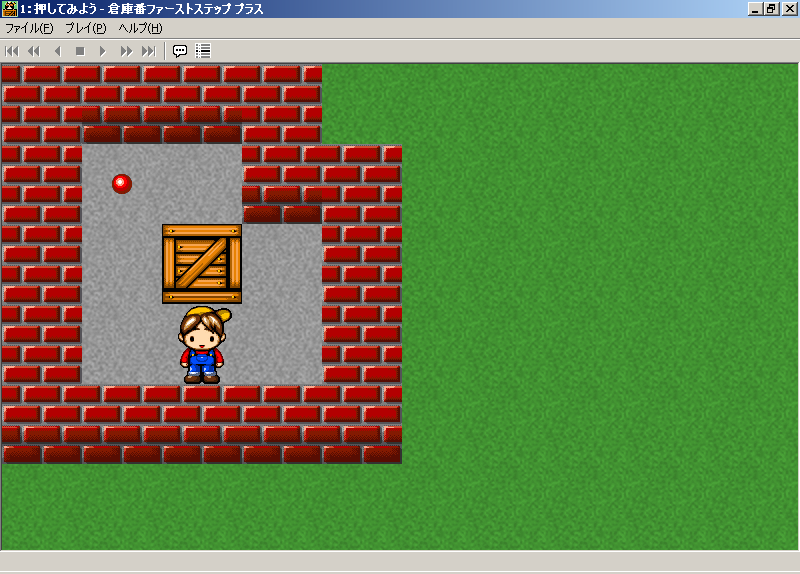
Sokoban Firststep Plus (Windows)
2016 February 09 - Thinking Rabbit
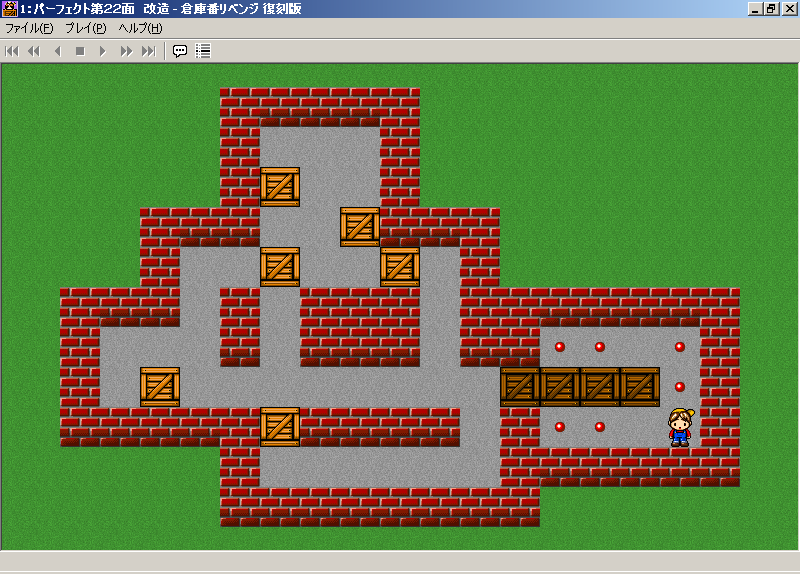
Sokoban Revenge Reprint (Windows)
2016 April 25 - Thinking Rabbit
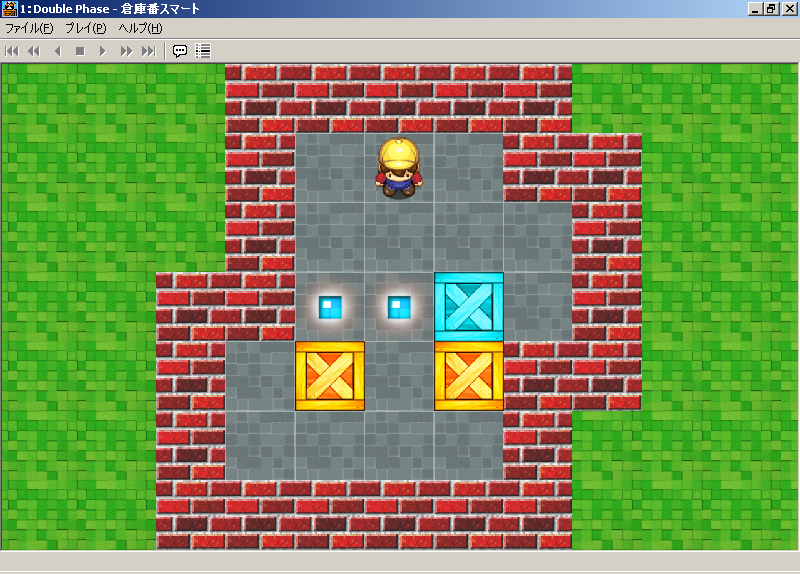
Sokoban Smart (Windows)
2018 May - Thinking Rabbit
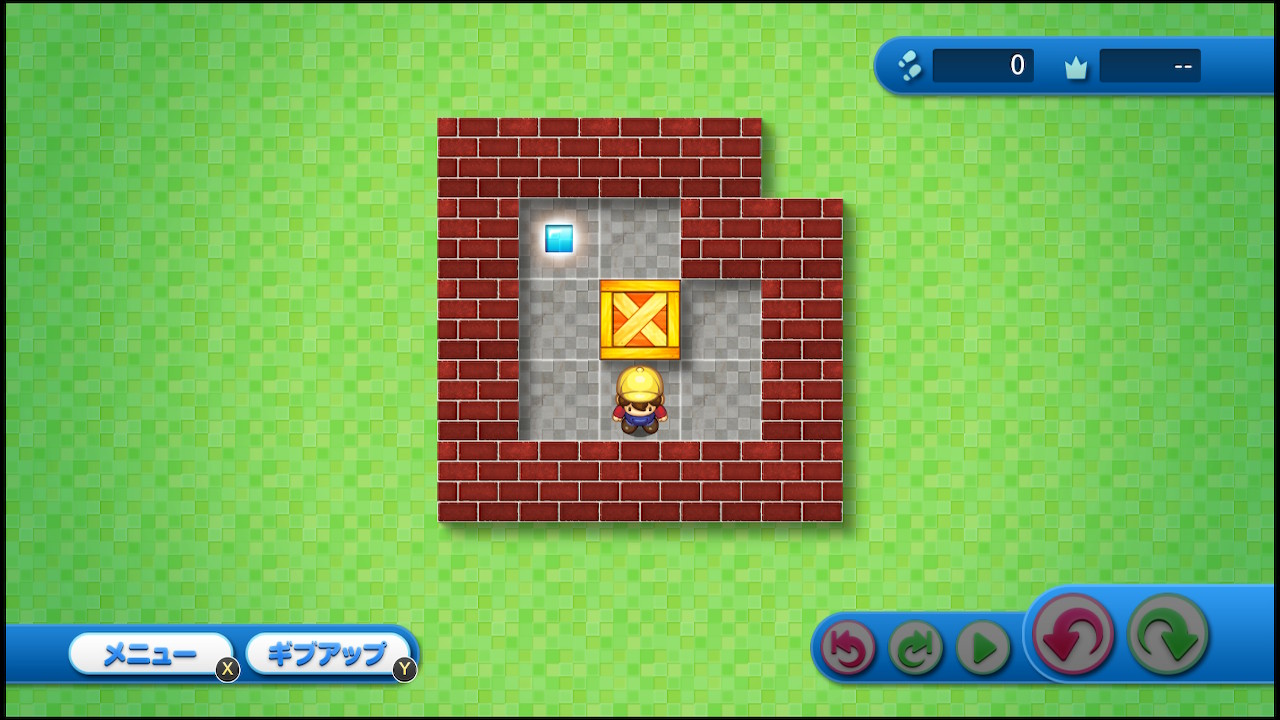
Minna No Sokoban (Nintendo Switch)
2019 May 23 - Unbalance
International releases
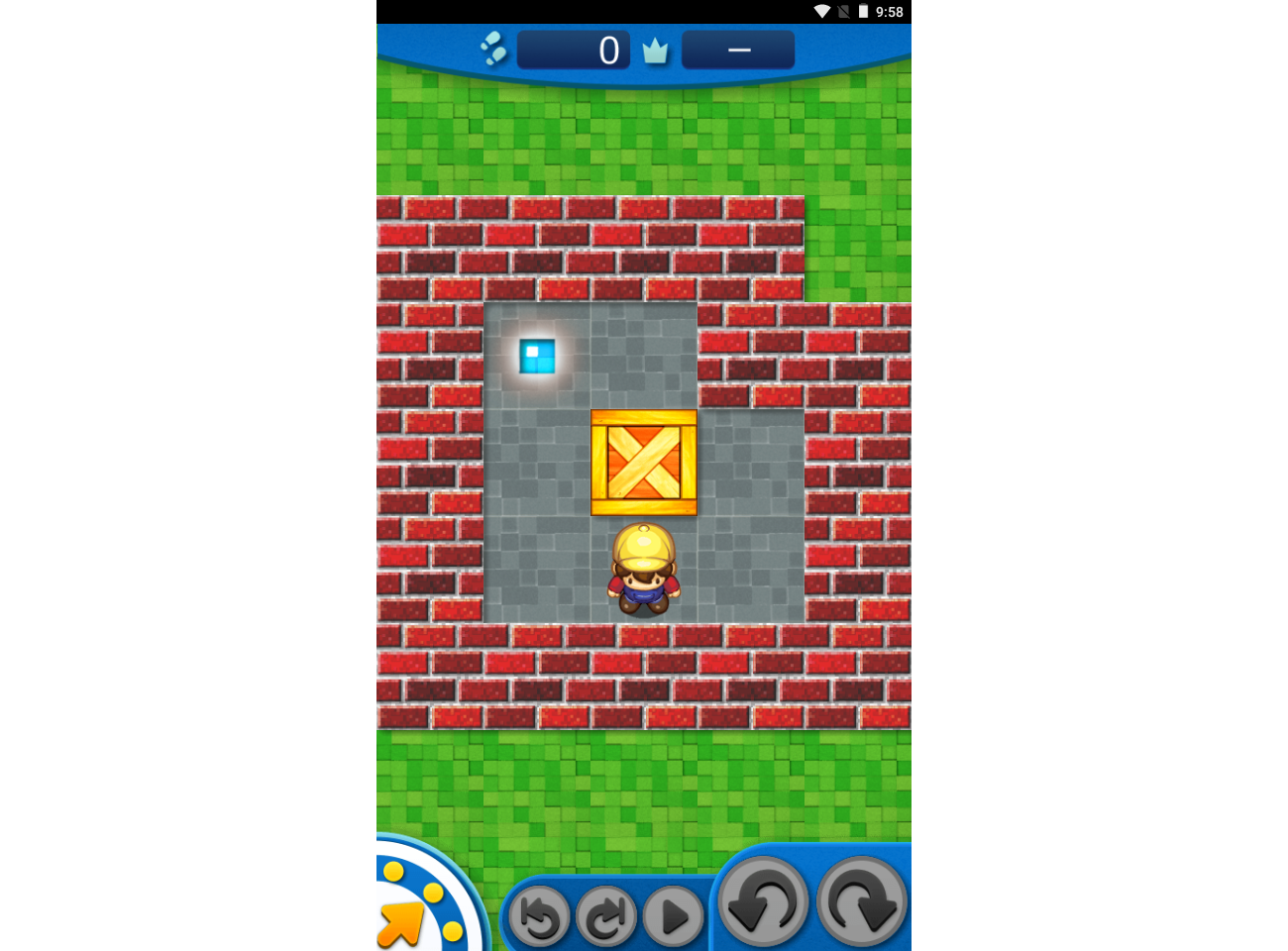
Sokoban Touch (Android)
2016 March 15 - Thinking Rabbit
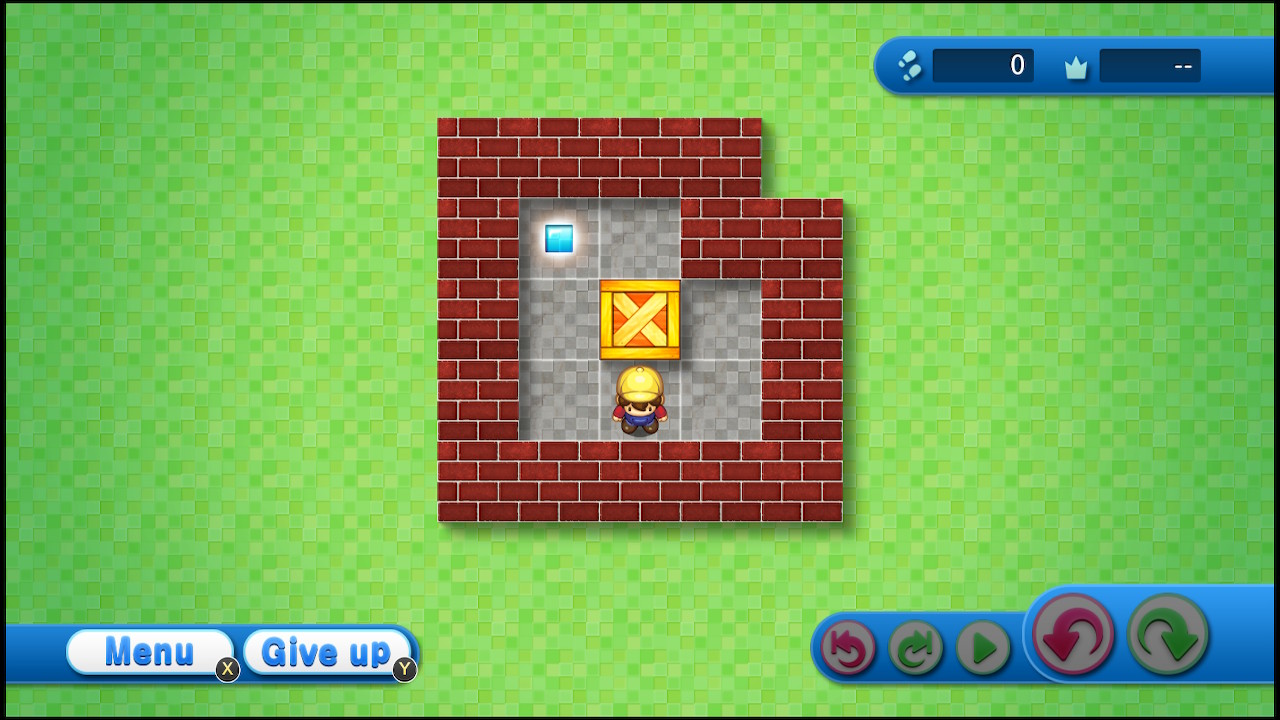
The Sokoban (Nintendo Switch)
2021 October 28 - Unbalance
U.S. releases by Spectrum HoloByte
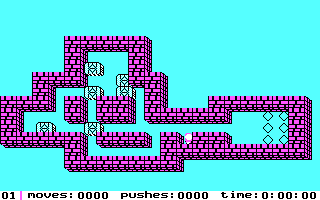
Soko-Ban (IBM PC DOS)
1988 - Spectrum HoloByte
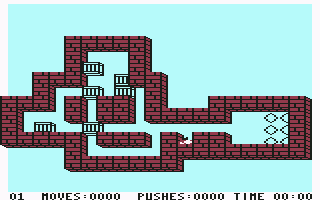
Soko-Ban (Commodore 64)
1988 - Spectrum HoloByte
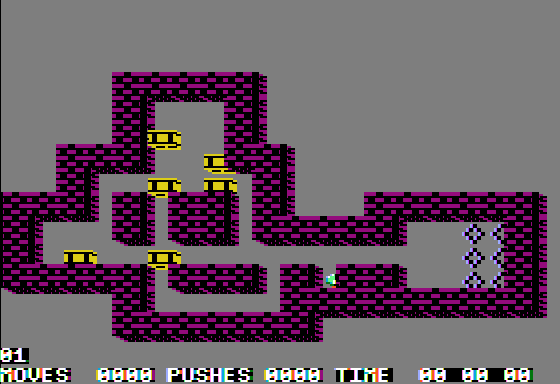
Soko-Ban (Apple II)
1988 - Spectrum HoloByte
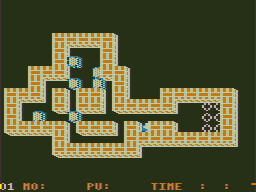
Soko-Ban (Tandy Color Computer 2)
1988 - Tandy Corporation
China releases
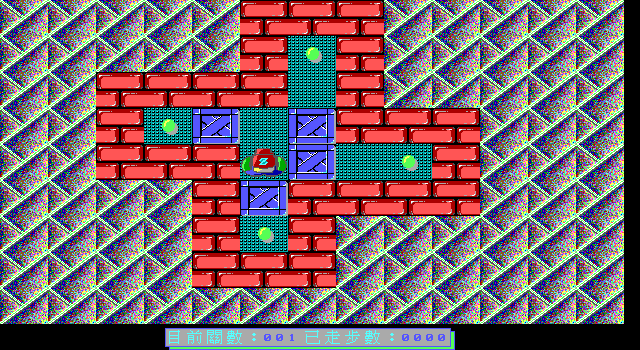
Warehouse Family (IBM PC DOS)
1990 - Softstar
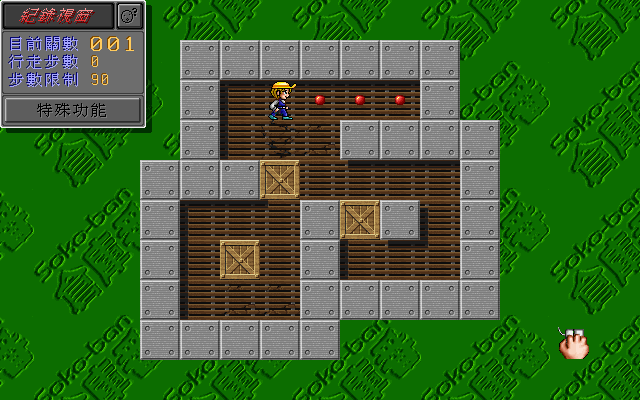
Sokoban Perfect (IBM PC DOS)
1995 September - Softstar
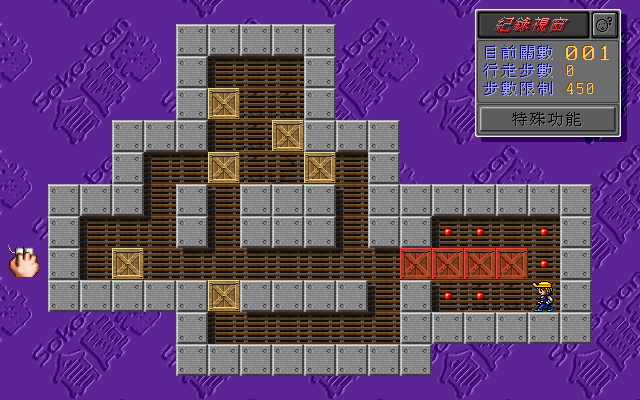
Sokoban Revenge (IBM PC DOS)
1995 September - Softstar
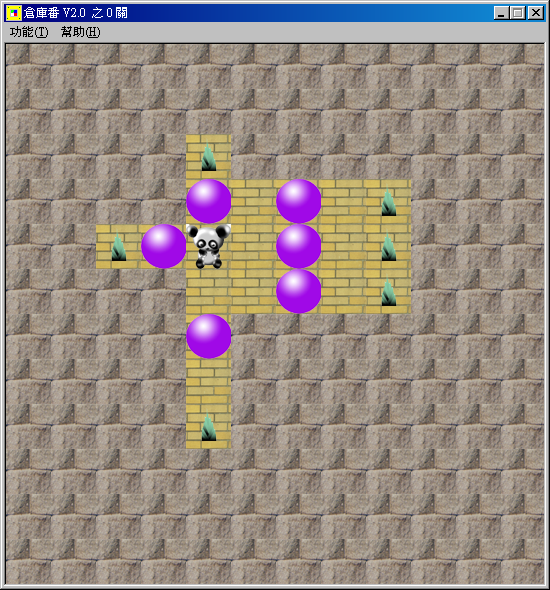
MoveBox (Windows)
2002 - Yi-Century
Others (Japan)
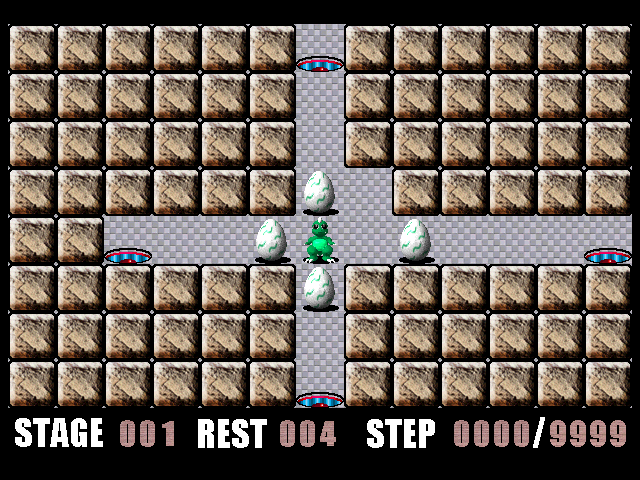
Soko-mania (Windows)
2003 - SALVA
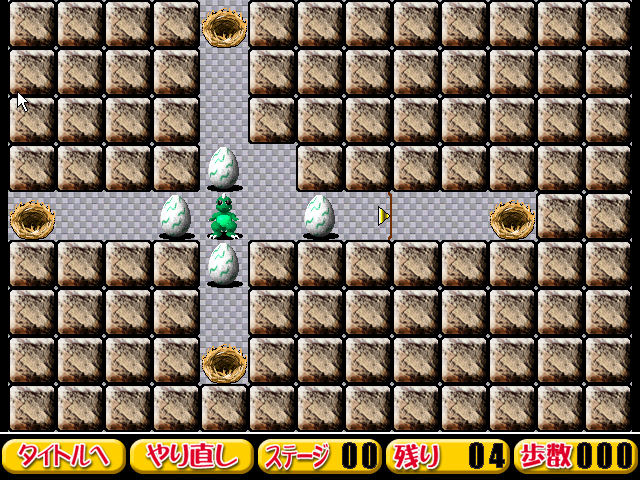
Soko-mania 2 (Windows)
2002 - MSD-JAPAN
Sokoban variant
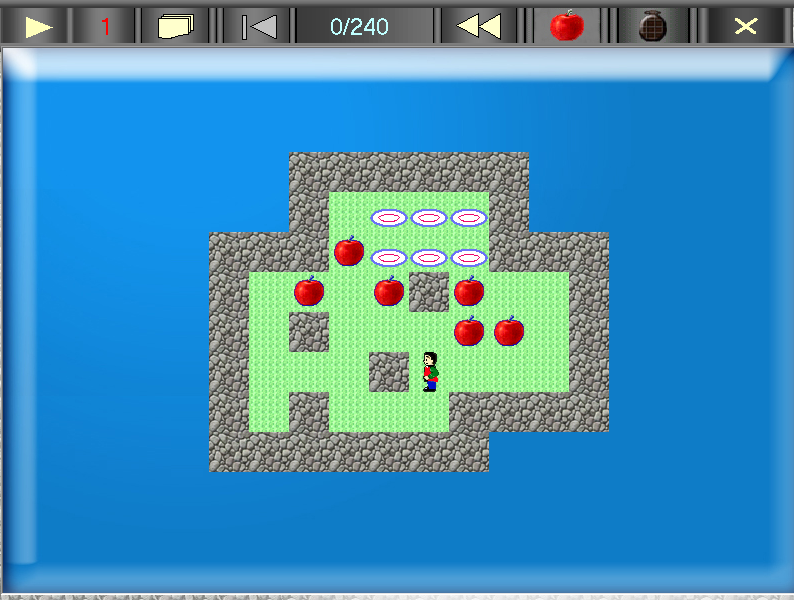
StoreGame (Windows)
2008 - Magnolia
Others (International)
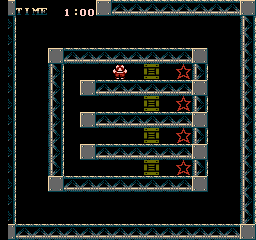
Porter (Nintendo)
1991 - Mega Soft (NTDEC)
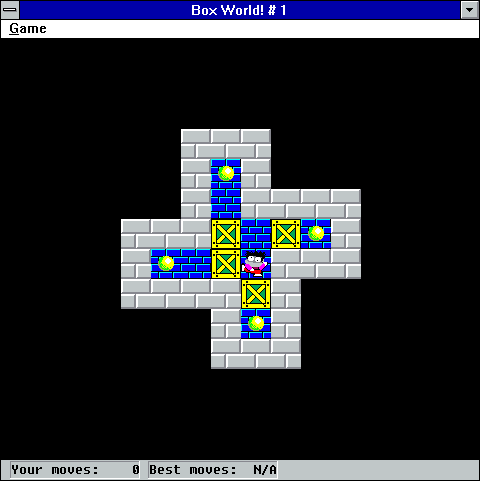
Box World (Windows)
1992 - Jeng-Long Jiang
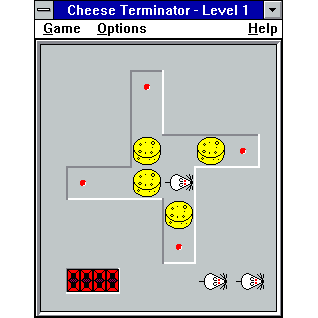
Cheese Terminator (Windows)
1992 - Microsoft Corporation
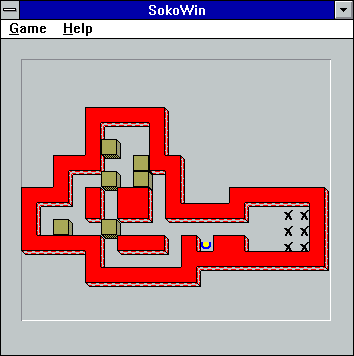
SokoWin (Windows)
1992 - Erik Pallemans
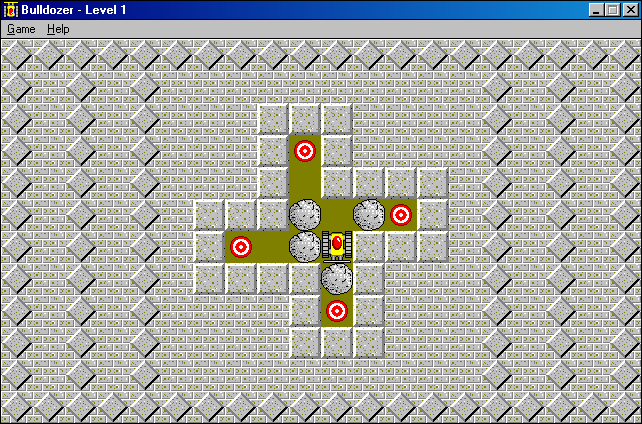
Bulldozer (Windows)
1995 - The Code Zone
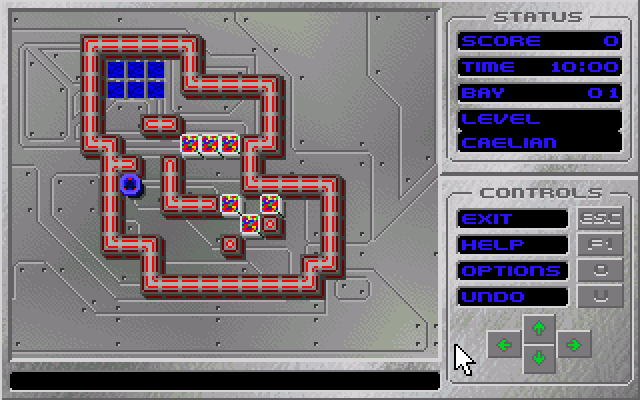
Cargo Bay Deluxe (MS-DOS)
1995 - MVP Software
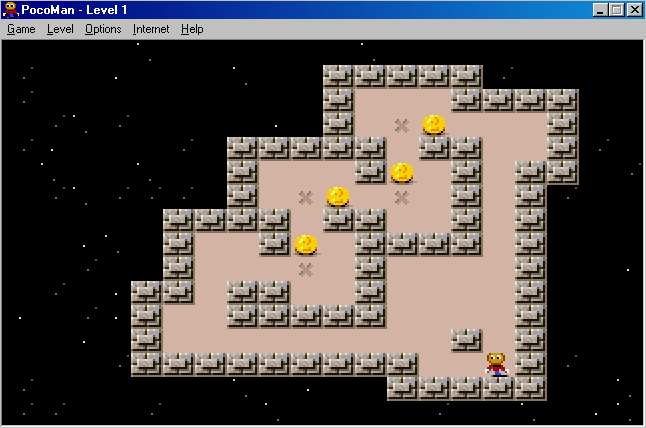
PocoMan (Windows)
1996 - Sleepless
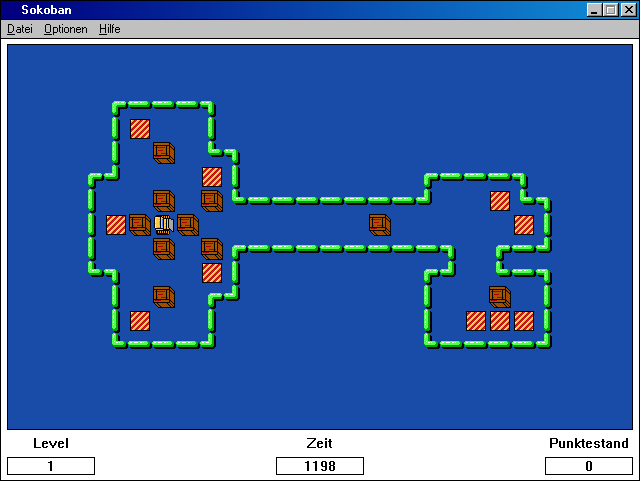
Sokoban 1.20G (Windows)
1997 - Softdisk
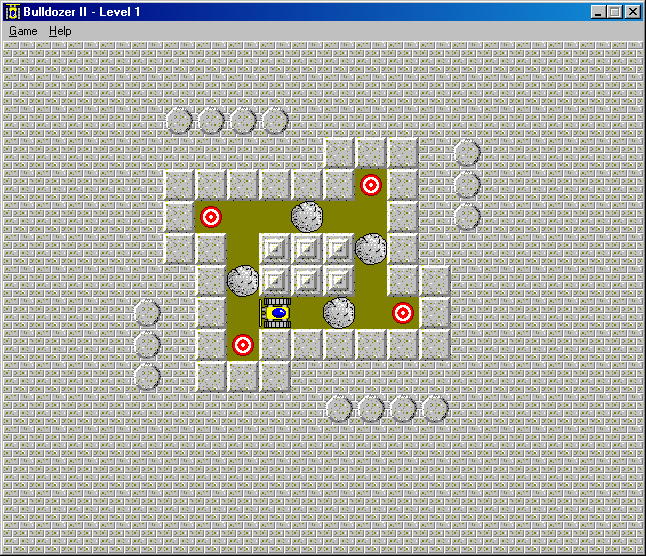
Bulldozer II (Windows)
1997 - The Code Zone
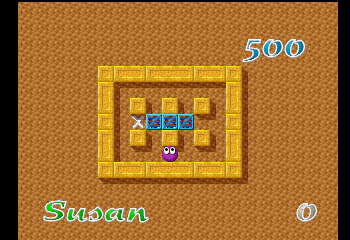
Pushy IIB Release #4 (PlayStation)
1998 - R. Fred Williams
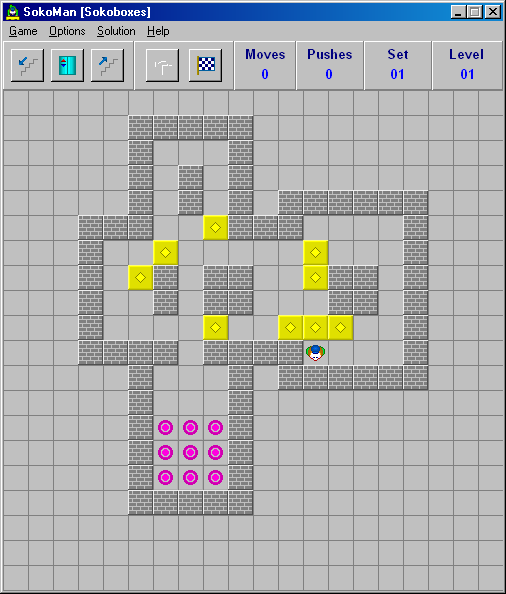
SokoMan 2.01 (Windows)
2002 February 10 - Lena Pankratova
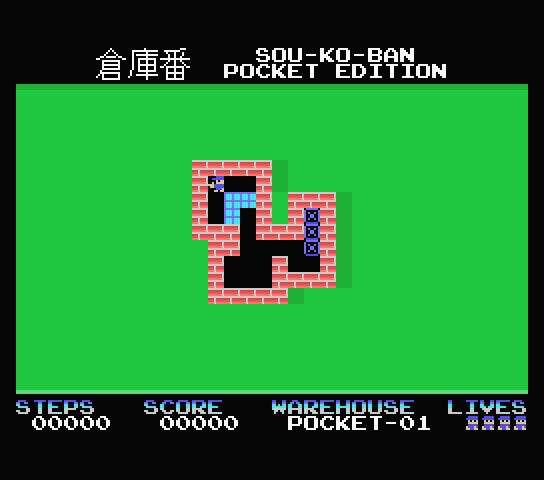
Soukoban Pocket Edition (MSX)
2004 - Karoshi Corporation
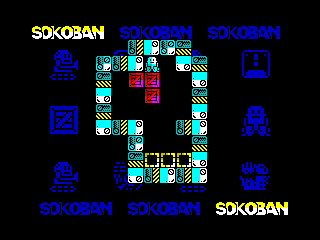
Sokoban (ZX Spectrum 128K)
2006 - Compiler Software
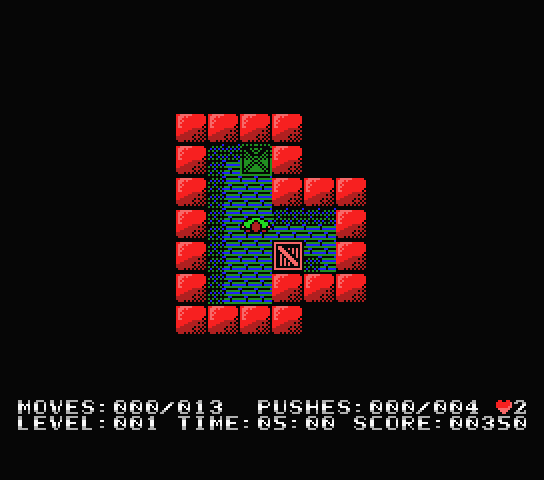
Boxboy (MSX)
2008 - Icon Games
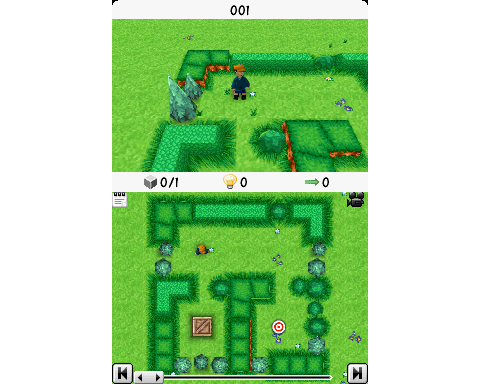
Sokoban DS (Nintendo DS)
2008 - RTL Games GmbH
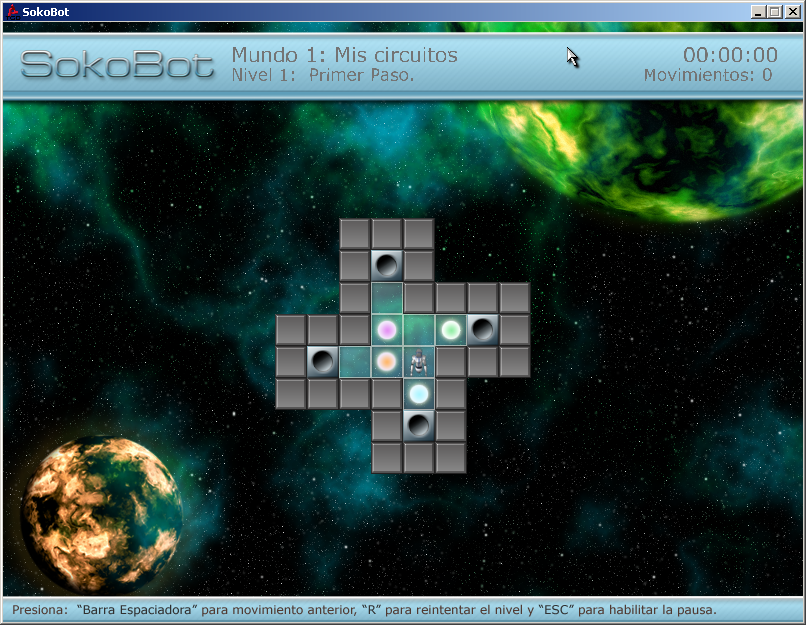
SokoBot (Windows)
2009 - Joven Club de Computación y Electrónica
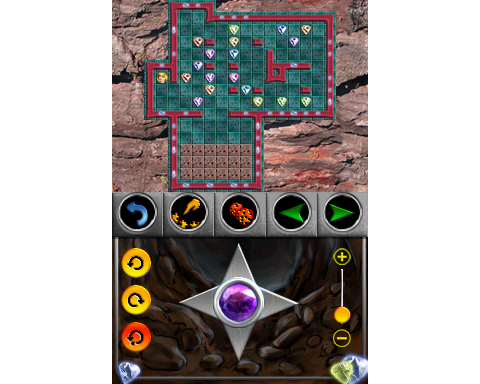
1001 Crystal Mazes Collection (Nintendo DSi)
2010 - Teyon
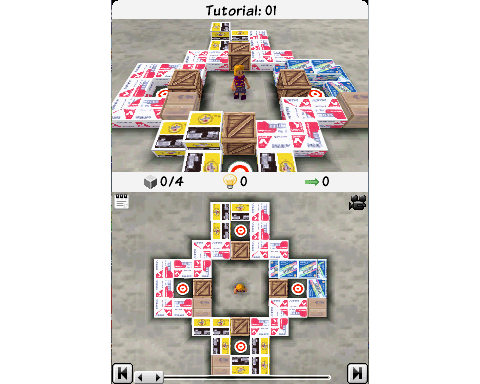
Box Pusher (Nintendo DSi)
2012 - GameOn
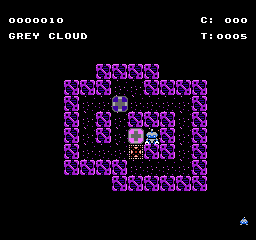
The Incident (Remastered) (Nintendo)
2020 - KHAN Games
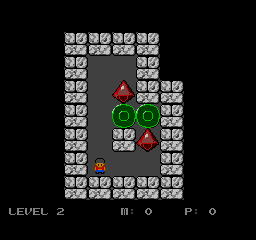
SKBN v2 (Sega Master System)
2022 - Raphaël Assenat
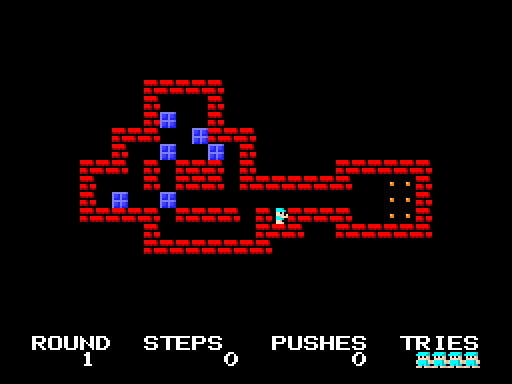
Sokoban based on the SG-1000 version (Windows)
2024 - Retrograde Road
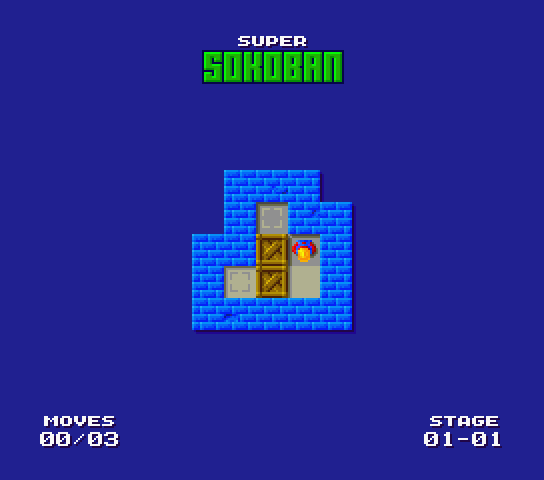
Super Sokoban (MSX)
2025 - 2NICE
Sokoban Variants
Games that follow Sokoban’s core mechanics but introduce additional behaviors or new elements, such as different types of boxes.
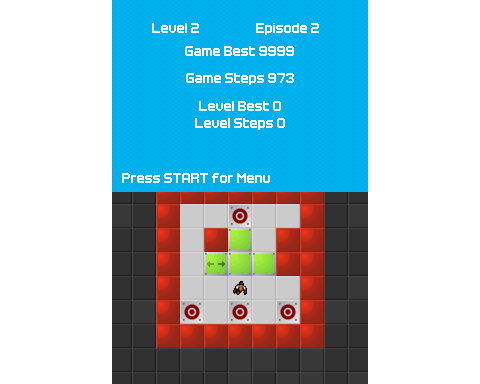
Sokomania (Nintendo DSi)
2010 - Cinemax
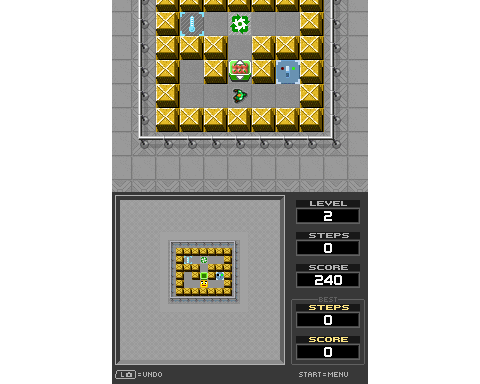
Sokomania 2: Cool Job (Nintendo DSi)
2014 - Cinemax
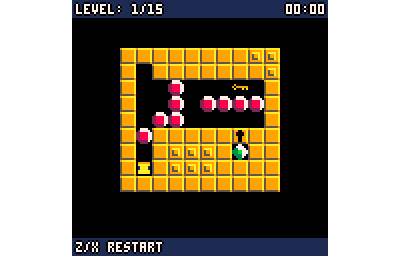
Picoban (Pico-8)
2018 - Carlos Pedroso

BoxBob (Web)
2021 - Carlos Pedroso

Grabbot (Web)
2021 - Carlos Pedroso
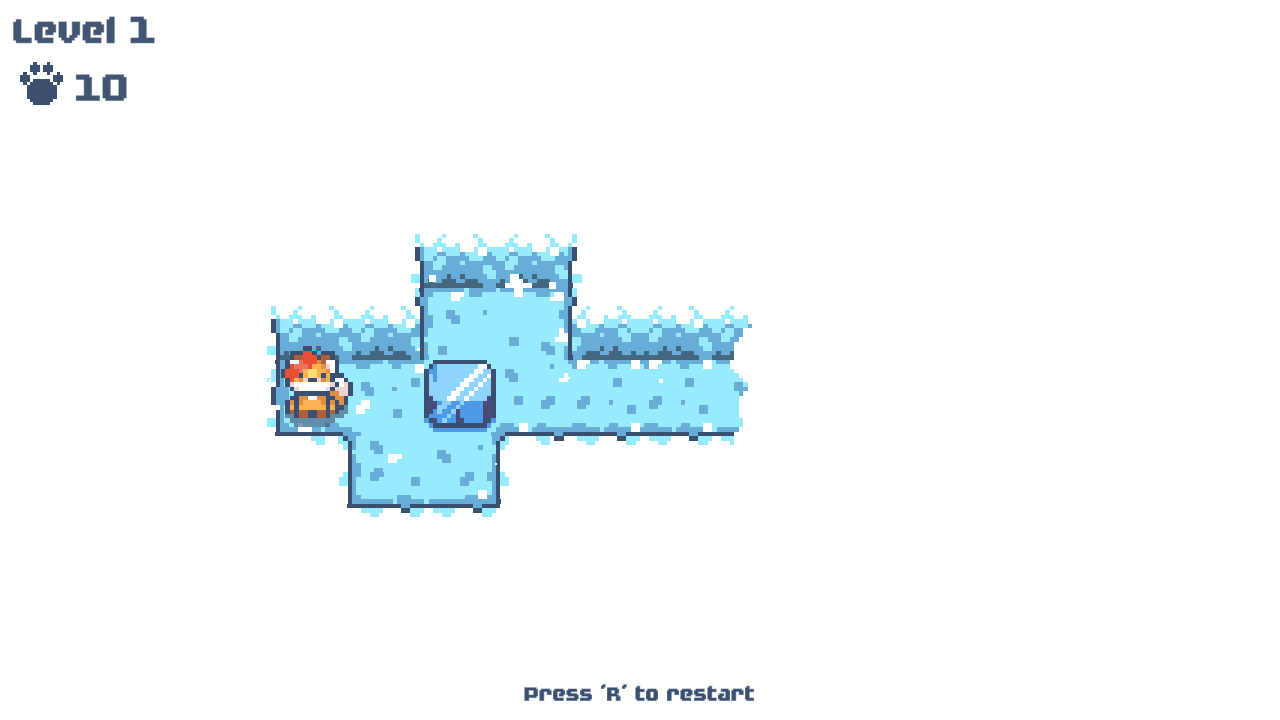
A Maze Fox (Windows)
2022 January - Chubby Potato
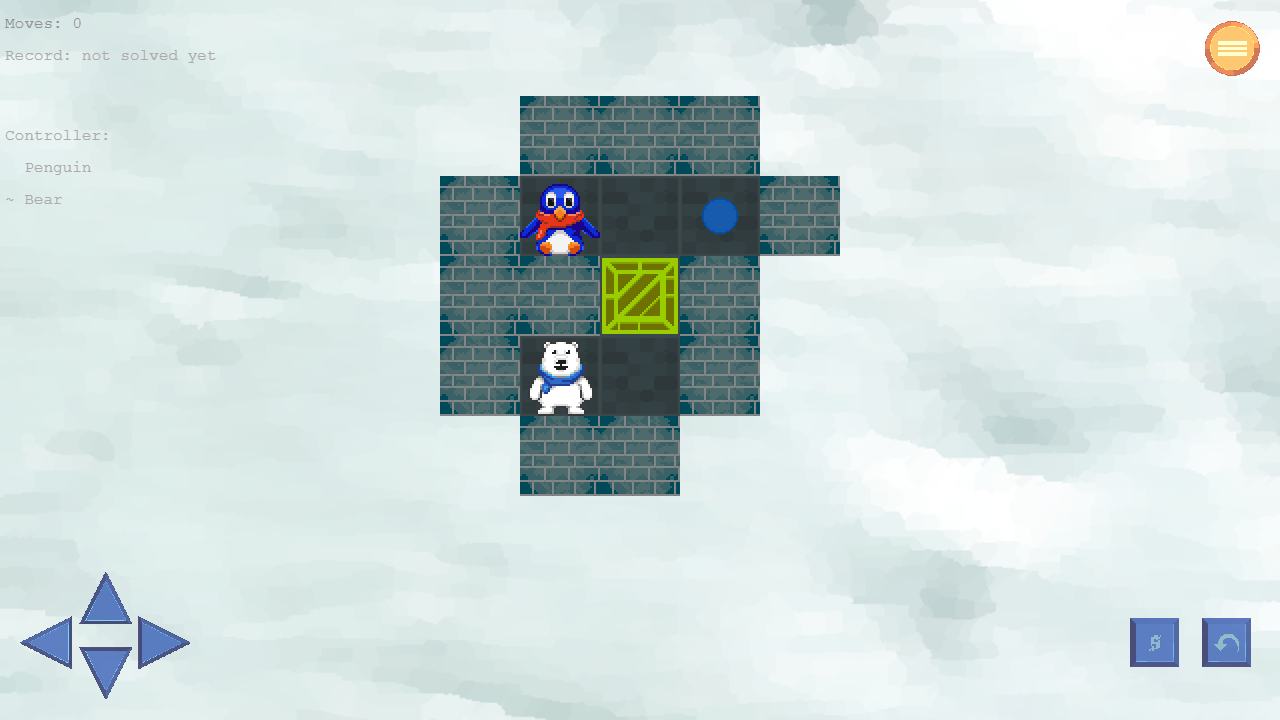
Sokoboxes Duo (Windows)
2023 June - Carlos Montiers Aguilera
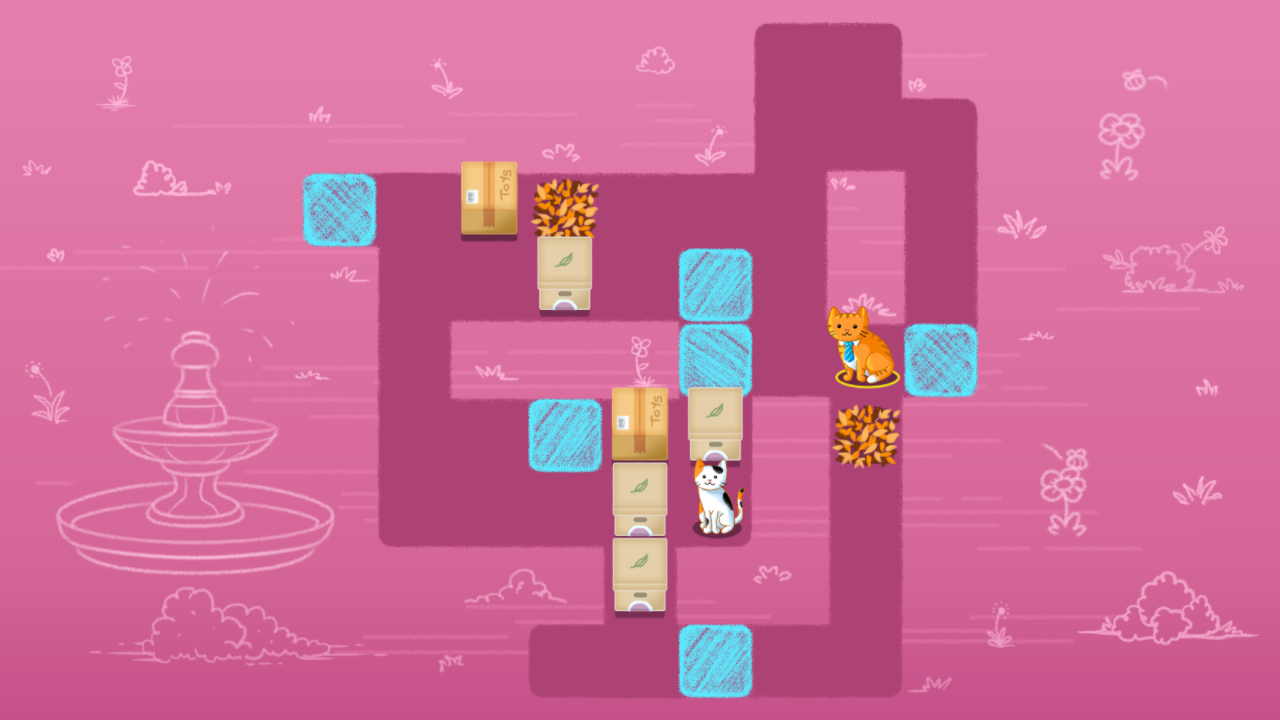
Cats Love Boxes (Windows)
2024 February - Devcats
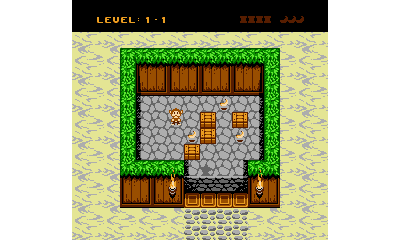
Soko Banana (NES)
2025 - Flip For Fate
Puzzle games similar to Sokoban
Some puzzle games resemble Sokoban because they involve pushing objects through a maze, but the gameplay objective is completely different.
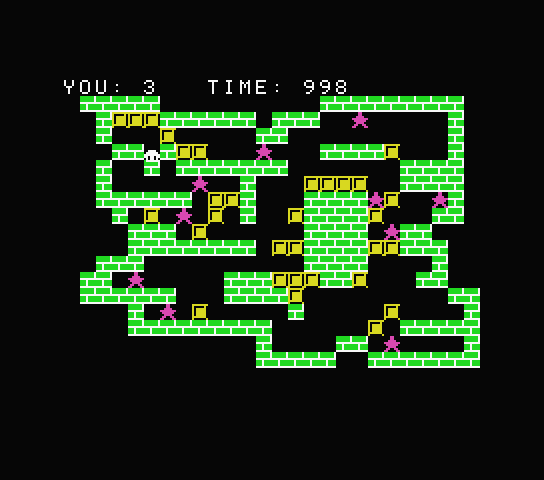
Puk Puk (MSX)
1986 February - POPCOM
Push boxes to open a path and collect all the stars.
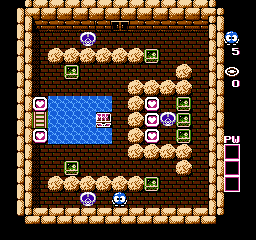
Adventures of Lolo (Nintendo)
1989 - HAL America
Collect hearts, pushing boxes and avoiding monsters when needed, to unlock the Jewel Box and get the item inside.
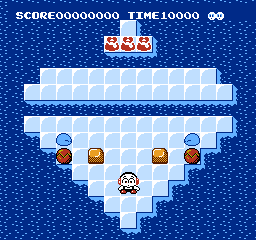
Kickle Cubicle (Nintendo)
1990 - Irem
Collect the red Dream Bags, freezing enemies and creating walkways as you go.

Rescue Rover (MS-DOS)
1991 - Softdisk
Puzzle-action. Push crates, marble balls and mirrors to disable or avoid robots, and rescue the dog.

Rescue Rover 2 (MS-DOS)
1991 - Softdisk
Puzzle-action. Part 2.

Princess Confusion (PC-98)
1992 - Initialize
Push balls into the target square. L, U, R, and D balls shift gravity when they fall, moving other balls automatically and preventing the player's movement in the opposite direction; N resets gravity, and B explodes along with weaker wall tiles on contact.
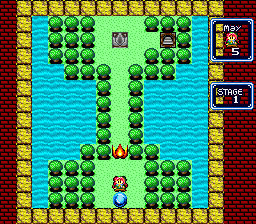
Little Magic (Super Nintendo)
1993 - Altron
Push a magic stone to the target square with your hands, or throw magic bubbles whose explosions move the stone.
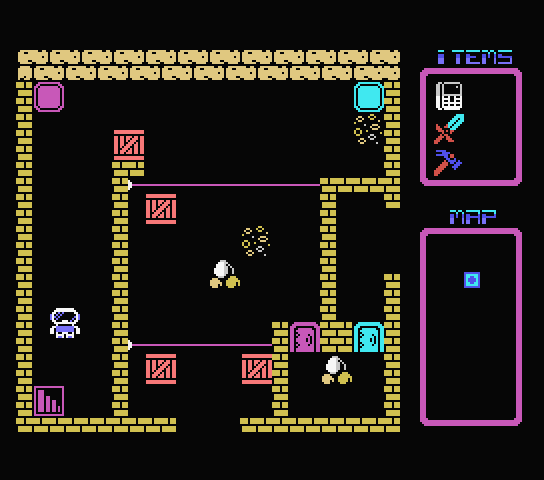
Shyre (MSX)
2023 - Raul Portales
Puzzle exploration.
What does the word 'Sokoban' mean?
The word Sokoban is written using Kanji.
Ming Wu, a Chinese fan of the game, kindly explained to me how it was written:
- 倉庫番 (Traditional Chinese characters).
- 仓库番 (Simplified Chinese characters).
- 倉庫番 == 仓库番 are exactly the same in meaning and in saying.
- 倉庫番 in Japanese means "warehouse keeper".
- 倉庫番 in Chinese means "spending time in the warehouse" or "things happening in the warehouse".
- Most people in China call the game 推箱子 (Push box).
Katakana: ソウコバン. Hiragana: そうこばん.
Thanks
I'm really grateful to Mr Takatoshi, who helped me with:
- Transcription of the type-in programs: Sokoban Tiny Editor (MZ-700, PC-8001), Sokoban for Pasopia 7.
- Dump of the cassette tapes: Sokoban 2 (PC-6001 mk2, PC-6001 32k).
Contact
If you have any questions or just want to get in touch, please send an email to: cmontiers@gmail.com
— Carlos
Last update: February 17, 2026